#these ones were made in 1990 actually but still
Text
Your Evil is My Good - Pyramids of Mars, 1975

There are some things, though not many, that the Doctor Who fandom seems to universally agree on. Everybody seems to agree that the Weeping Angels are a great, iconic monster. Everybody seems onboard with the notion that The Caves of Androzani is one of the best stories of all time. Everybody seems to agree that the Hinchcliffe era is one of the most consistently good runs in the whole show. You can probably see where I am going with this. Pyramids of Mars has been forever lauded as one of the all-time great Doctor Who stories, a shining example of a show that appealed to all ages at the peak of its powers.
Like all consensus opinions, there is obviously a clear logic to this. Pyramids of Mars is incredibly memorable and influential. It was, after all, the third serial to be released on the VHS line and it topped the DWM poll for most anticipated DVD release in 2003. Even if it were not so formative and prominent in fan's minds (the amount of times it has selected for re-release and repeat is remarkable) it would still be one of the most influential and groundbreaking stories of its time. It is hard to challenge the claim that Pyramids of Mars is the single most important story of the Hinchcliffe era. Not the best (there are at least four prior to this that could more readily stake that claim) but, in an aesthetic sense, the pilot episode for the Hinchcliffe era or, at least, the one where everything finally falls into place. Prior to Pyramids of Mars, Doctor Who had functioned primarily based on the approach pioneered by Verity Lambert and David Whittaker back in the early 1960s. Their vision of Doctor Who was as a programme defined by juxtaposing aesthetics and the storytelling had developed to facilitate that by colliding genres and styles of storytelling. What debuts in Pyramids of Mars is, in hindsight, the inevitable next step which is positioning the established aesthetics and logic of Doctor Who alongside specific pulp genre stories. The difference is the distinction between the Doctor walking amongst a space opera or a western and disrupting their logics and aesthetics and the Doctor walking around within 1971’s Blood of the Mummy’s Tomb and being beholden to its logic and aesthetic.
In the 1990s, Steven Moffat infamously derided the Hinchcliffe era for comprising too largely of derivative pastiches and, while I ultimately agree with him, he is made to look a bit of a fool because of how much the approach does actually work. I like Pyramids of Mars. Of course I do. I'm a Doctor Who fan. This story is a blast to watch and it is the first in a really strong run of pulpy, gothic horror-pastiches that define the Hinchcliffe era in everybody's minds (I stress this is not the beginning of a run in terms of quality, just the start of an aesthetic period that also happens to be very good). This is a messy story but it is a very promising first showing. Pyramids of Mars proves that this model of Doctor Who can work and it lays the groundwork for better stories later down the track. after it to take this aesthetic and run into incredibly interesting places. So, as you have obviously concluded by now, this is not even close to my favourite of the Hinchcliffe era, let alone of all time.
Yes, the production of Pyramids of Mars is spectacular. Probably the single strongest aspect of the Hinchcliffe era is just how good the show was at working within its limitations. None of the stories under his watch look especially naff and Pyramids of Mars is especially luscious. The serial is dripping in tone and atmosphere and I could not begrudge anybody frequenting it for just the mood it puts you in. The sets for the house are great and effortlessly evoke that classic, hammer horror tone of an old, creepy house with creepy old dudes doing creepy *cult* (we can replace that word with *casually stereotypically racist*) stuff. The visual effects are also excellent with particular kudos to that chilling bit where Marcus gets shot. I could watch that one sequence forever.
This is not a script with a wealth of great material for the actors but there is no question that they are all exceptional. Paddy Russell even claimed as much herself, insisting upon finding strong actors to bolster material that she thought was lacking. Michael Sheard brings a lot to Laurence Scarman, the best part in the whole story from an acting perspective, but it is hard to look past Garbriel Woolf as Sutekh for the best guest performance in the serial. What a captivating voice and commanding presence. Tom Baker's performance is often praised for the seriousness and dread he brings to proceedings. He even has some particularly dark and alien moments such as his total detachment from the various deaths around him. In my opinion, however, I find his performance to be distant and disinterested, likely thanks to his frosty relationship with Russell. Luckily, it does serve this material well and offer an alienness to the role but he seems incredibly bored and pissed off every time he is onscreen. As with this whole season though, Elisabeth Sladen is at the height of her powers and effortlessly wrings buckets of charm out of scripts that, again, serve her terribly. Following season eleven, it feels like nobody working on the show has any interest or even a take on the Sarah Jane that we were introduced to. Everybody who has ever seen this serial praises the scene where the Doctor leaves the events of the story for 1980 at Sarah's request and rightly so because it is a phenomenal sequence and possibly the most effective way to demonstrate how awesomely powerful the villain is in the whole show’s history. It's so good, of course, that Russell T. Davies had the good sense to nick it wholesale for The Devil's Chord. Everything aesthetically about Pyramids of Mars works. This is a great story to just watch and let wash over you.
However, I think that this script is deeply flawed and definitely needed another pass before it could attain true GOAT status in my books. Perhaps that will seem unfair to those who will cry out in defence with the reminder that this story was another late rewrite from Robert Holmes when the original scripts, from one time writer Lewis Griefer, were deemed unworkable. It is somewhat miraculous that this story even got made at all. It’s difficult to say now how much of the finished serial can truly be credited to whom. Greifer, was approached by Holmes, a former colleague, while headhunting new talent. Knowing he had a keen interest in Egyptian mythology, Holmes allegedly pitched the combination of science-fiction and a mummy horror film to him. Greifer’s scripts would have been radically different including the proposed final appearance of UNIT and the Brigadier, a scheme to solve world hunger with plantations on the moon year culminated in the Doctor uniting with Horus and Iris to take on the crocodile looking Seth and stop his plan to replace the grain and destroy the moon. It is from here that the development of the serial becomes very collaborative. Holmes met with Greifer and suggested a number of scaled-back alterations that were more in-line with what Doctor Who was suited to in 1976 as well as taking on suggestions from outgoing producer Barry Letts.
Greifer revised his scripts further to what would be the basic plot of the television version, moving the detecting to Earth with an imprisoned Seth and his rocket-based plans, with the added addition of a fortune hunter seeking the world-saving rice in an ancient Egyptian tomb. Holmes remained unhappy with the scripts and, to make matters worse, Greifer fell ill after delivering a full script for the first episode only. Following his recovery, Greifer then promptly left the UK to take on a job her previously committed to leaving Holmes to do a page one rewrite with the consultation of director Paddy Russell based on what had already been put in motion. With all of this fraught pre-production in mind, I still think this story is an undercooked mess. The first episode is fantastic and I really love the third but there is so much padding in episodes two and four that really drag the whole thing down for me. The entire second episode is just spent cutting between Sutekh killing people and the Doctor setting up a plan to stop him that fails immediately: The foundations of this serial are really strong and it has some great dialogue, characters and moments but the whole thing fails to hold together for me especially in regards to, pacing toward the end, and the real lack on any interesting subtext to sink your teeth into.
But let's try and find some anyway. Broadly speaking, mortality seems to be the theme that connects the various elements of the story. We are first introduced to the Doctor in what is probably my single favourite shot of him in the whole seven years he was in the show. We meet him alone, in silence and brooding in the TARDIS control room. Sarah enters in what will be a coincidentally appropriate Edwardian dress, our first indicator that this story is really all about aesthetics and flavour more than anything else, and we discover that the Doctor is in somewhat of a mid-life crisis, grappling with the uncomfortable realisation that his life is marching on and that he has no real purpose. This is a really well written and performed scene, one of the best the Doctor and Sarah ever had, and probably my favourite of the serial. While the original show on the whole is not know for deftness of characterisation and development, Pyramids of Mars proposes a potentially interesting starting place for the Doctor’s character which is simply to put him in a somewhat depressed mood and unhappy with the prospect of spending his remaining days at U.N.I.T.‘s beck and call. This a Doctor who has lost his sense of purpose and ambition. It is a great idea that could reveal a lot about the Doctor and challenge his character, as we later saw under Moffat's creative direction, but it never goes anywhere here. Pyramids of Mars is a serial about a villain who does have a defined purpose and ambition – to bring death to all of reality. Yet the person best poised to stop him is in a crisis himself about the prospect of that very thing arriving for him. The character-driven story of a wandering hero in a mid-life crisis versus the Lord of Death should simply write itself.
But it doesn't. The Doctor does not walk away from the end of this adventure with a renewed sense of self or really any semblance of change in the morose feelings he expresses in episode one. It would have been perfectly forgivable if his mid-life crisis was something that the production team set-up here and went on to develop over the season but that never happens either. The Doctor is more than happy to assist U.N.I.T. in the very next serial and yet once more before the season wraps up. The elements are all here to ie the themes and character beats together but it never really happens. For example, I would love to confidently read something deeper into the final visual of the house burning down. It is, after all, the Doctor who starts the fire and we know from episode one that, later down the track, the manor is going to be rebuilt and repurposed as the U.N.I.T. headquarters. All cutesiness aside, the thematic implications of this are really nice. Sutekh wants to end everything, leaving "nothing but dust and darkness", but we all know that the manor's destruction is an ultimately necessary consequence to allow for something good to rise up from its ashes. With the death of one thing, life can begin anew in its place. This is a simple enough thematic bear could have been teased out and made a lot stronger but it could even have been a clear indicator of some character resolution. With the Doctor inadvertently facilitating the conception of U.N.I.T., this whole image could represent his coming to terms with his place in the universe after combatting Sutekh and passionately redefining himself and coming to terms with a now mythic role as a defender of all life in the universe, a champion of change and renewal. It is something almost there in the script but not quite.
The use of Egyptian iconography in this story is very clever. We know that death was an incredibly important aspect of their culture. People's corpses were mummified to preserve them for the afterlife since death was very much believed not to be the end. There is some cool world-building in this story and I really like the idea that Egyptian culture is all founded upon the wars of the Osirans (Osiris being the Egyptian god of the dead and of fertility). Sutekh is directly mentioned as being the inspiration for Set, realised as well as one could expect in his final beastly form, and the whole premise of the story is hinging upon his previous eternal imprisonment at the hands of brother Horus. I love that the bringer of death is punished by having an eternally unlived life. I think that this context is intended to be paralleled with Marcus and Lawrence. The pair are brothers and, for most of the story, the former literally is Sutekh. There is potentially something very cool in this but, again, the story is in dire need of another draft to really pull it to the fore. Lawrence is ultimately killed by his brother in quite a genuinely tragic moment since he is such a well performed and written character but the actual implications and significance of the scene beyond just the sheer shock value are ultimately lost on me. If Lawrence is a parallel with Horus, what is this supposed to communicate? That Sutekh would have killed his brother given the chance? That there is no humanity to appeal to with this villain? I am not sure of the intention but the scene, like this whole story, is almost fantastic.
And then there is the final episode. Every critic of this story before me has already torn this episode to pieces but I will just take it on briefly and note that the whole story just kind of falls apart at this point. The opening scenes with the Doctor and Sutekh are awesome but as soon as we actually get to the titular location, Holmes starts playing for time really hard. The first three episodes are already padded out to the max with extended woodland chases, an awkwardly large number of scenes where the Doctor and Sarah are simply walking to the poacher's shed and the entire character of the poacher himself in episode two who interacts with none of the main cast (save Marcus) and is just killed anyway. None of this blatant stretching of the script bends to breaking point thanks to how strong the production is at capturing the horror tone and aesthetic but the fourth episode is not so lucky. What we have here, for most of the episode, is an extended sequence of the Doctor and Sarah attempting an Egyptian themed escape room. This could have been compelling and some of the puzzles are kind of cool but the presentation is actually quite awful and the whole logic of this situation kind of escapes me. I suppose that Horus set these up to stop Sutekh’s followers from getting into the pyramid but does he just have the same voice as Sutekh? Is that what is going on? It also does not help the story that this section is all shot on CSO and, aside from some great model work, looks incredibly cheap and bad. The serial takes a really shoddy nosedive but the biggest insult of this whole affair is simply that the whole episode is a colossal waste of time. The Doctor and Sarah accomplish nothing in going to the pyramid and just turn around to go back to the house to save the day with a totally different plan by the end anyway. Neither the characters nor the audience gain anything at all from the whole sequence.
Thus, this is the great conflict I have with Pyramids of Mars because I love watching it. I love the flavour of the story and the clear effort that everybody put in to make it the memorable, entertaining experience. For the most part, I am really sucked in by it. But it is not a masterpiece. In the end, there really isn't very much to say about it at all. This is a serial that feels like watching the tracks being laid when the train's already moving. It makes for a fun journey but the final destination is really shaky. Pyramids of Mars is exceptional in theory just leaves that little bit to be desired.
It is still a cracking story though. After all, this is mid-70s Who we’re talking about.
#doctor who#tv#analysis#behind the scenes#history#review#tom baker#4th doctor#classic who#fourth doctor#sarah jane smith#dw#sutekh#ruby sunday#fifteenth doctor#15th doctor#empire of death#legend of ruby sunday#the legend of ruby sunday#mrs flood#susan twist#pyramids#ancient egypt#archaeology
29 notes
·
View notes
Text
Anyone else feeling weird tonight?


#weird al#weird al yankovic#cassette#cassette tape#vintage#1980s#these ones were made in 1990 actually but still#in 3d#dare to be stupid#even worse
38 notes
·
View notes
Text
An Analysis of the Ubiquity of Mall Brands in the late 1990s to early 2000s, or
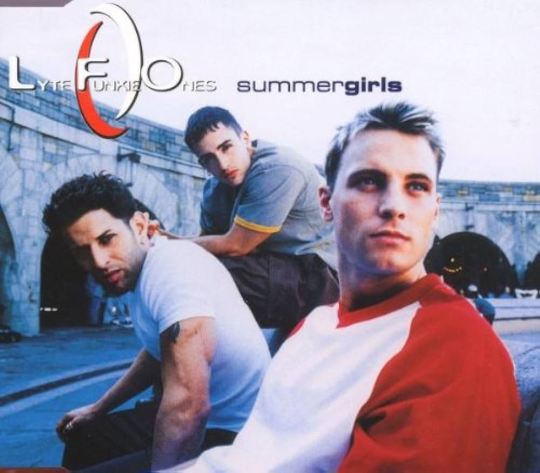
I Fucking Hate These Guys
by OMG!thatdress
If you were a tween to teenager from roughly 1997 to 2004, chances are, you were left with profound life-long trauma caused by someone wearing Tommy Hilfiger, Abercrombie & Fitch, Ralph Lauren, Nautica, American Eagle, The Gap, Old Navy, or, if you were came along a little later, Hollister or Aeropoastale.
I cannot overstate to my young followers how over-saturated these brand names were in teen culture at the turn of the millennium, the extend to which EVERYONE was wearing them, and yet, in a weird way, how light the imprint they actually left on fashion history was.
Watching iconic teen shows of the era, you don't see any of them because a.) TV teenagers tend to be way cooler and more stylish than awkward and desperate real teenagers actually are, and b.) these brands were all copyright protected, which kept their names and logos off the airwaves.
Look in a middle school yearbook, however, you'll see it. Look at your aunt and uncle's high school photo albums, you'll see it. Ask any late Gen X or early Millennial. It was real and it was fucking awful.
The big question is why? Why? WHY, GOD WHY?! There's a lot of answers to that question.
First of all, I'm going to cite this absolutely wonderful article from Collector's Weekly about why everyone's grandma had a hideous orange couch in the 70s, and give the most simple and straightforward answer: it's what was available.
This is when the concept of online shopping is still very much in its infancy, and the hub of American consumer culture was still your local mall. If you needed new clothes, you went to the mall. And guess what stores were at every local mall? You guessed it.
For the second answer, I'm going to dig up this utter relic from the early days of internet meme-ing, that has nonetheless stuck with me and had a profound impact of my understanding of how popular fashion works:
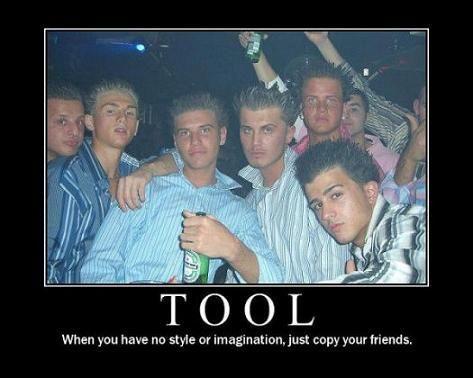
I'm pretty sure that the reason Abercrombie & Fitch manages to survive as a brand today rests solely increasingly middle-aged Millennial men whose sense of style has refused to evolve past the shit their mom bought them in high school.
And why the hell would they? Nobody wore Abercrombie because it made them stand out or feel special. I'm still pretty convinced that nobody actually *liked* the aesthetic or thought the clothes actually looked good. You need not look past the basic color palette to understand these were not brands meant for uniqueness or self-expression.

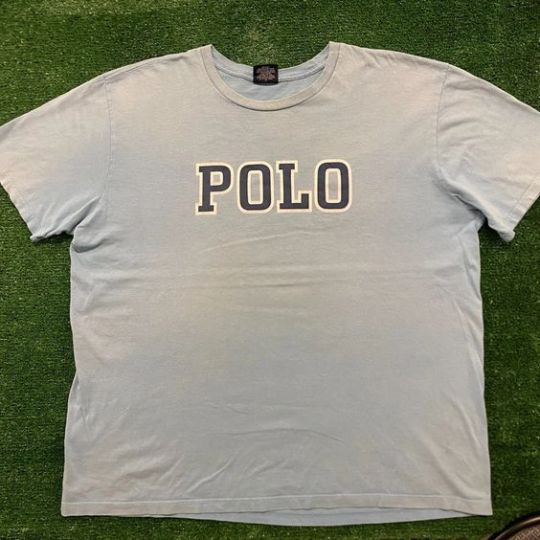
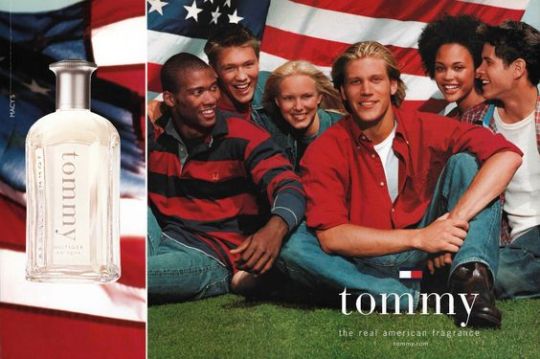
While Britney Spears pranced around stage in her iconic neon colors and body glitter, American teenagers existed in a never-ending hellscape of washed-out neutrals, faded denim, and American flag primary colors.
All of which served its exact purpose: it was safety. It was a way to appear cool if you didn't want to go through the ordeal of actually having a personality or a sense of style. Which, of course, goes back to point number one: it was just shit you bought at the mall because you needed clothes.
It wasn't enough to save you once the school bully caught that whiff of autism and/or queerness on you, but it was enough that you could blend into the herd and pray no one ever noticed you.
Underneath it all was a very subtle undercurrent of class and classism: to wear mall brands was to declare to the world that you could indeed afford to shop at the mall. It meant you weren't, god forbid, poor.
Status symbol clothing goes back to the invention of clothing itself. The concept of brands as status symbols is still very much alive and well, its just more limited to actual luxury brands nowadays. One need look no further than your favorite high-end children's clothing website to see that rich parents still very much think it important that you know their five-year-old is wiping its boogers on Versace.
None of these brands were actual high-end luxury brands, but they still advertised and presented themselves as such. Their ads featured signifiers of "all-american" (read: White) wealth: yachts, skiing, horses, beaches, shirtless dudes with chiseled abs playing verious sportsballs.
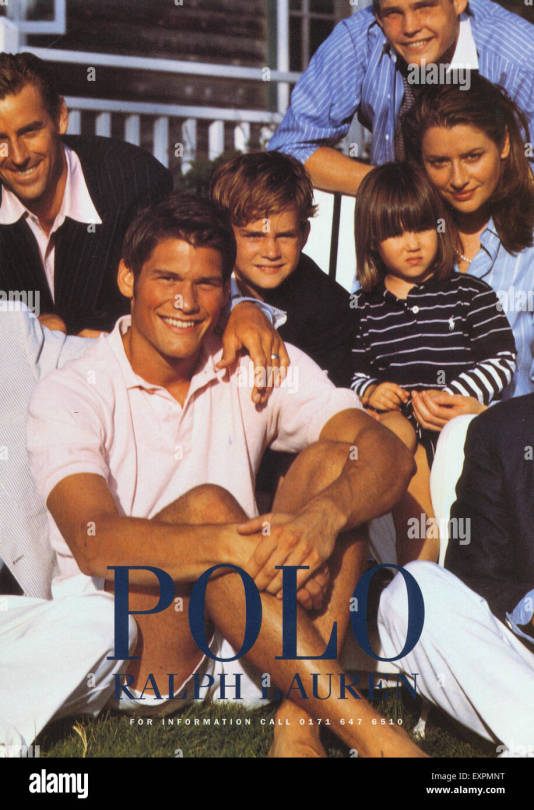
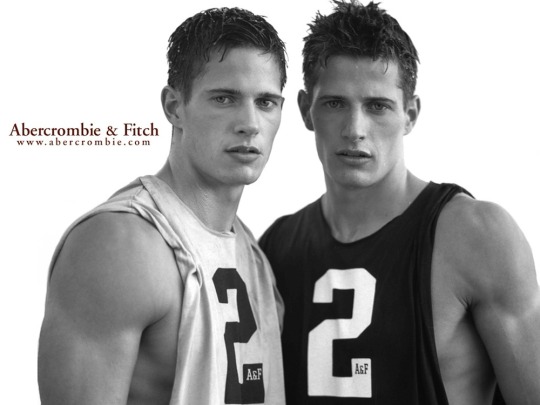
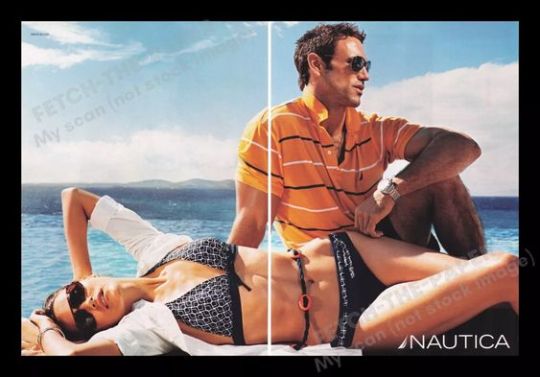
The color palettes and cuts mimicked the preppy "Ivy" style of the New England old-money elite, along with their hobbies and lifestyle. You may not actually own a horse, but you can wear a polo shirt. You may not be able to run without breaking your ankle, but you wear the same shirt as the dude holding a football in the ad.
It was an elitist, White and skinny image that didn't age well into the diversity and body-positivity of the 2010s.
In 2003, a lawsuit was filed against Abercrombie & Fitch alleging systematic racial discrimination. People of color were rarely hired, and if they were, they were given jobs in the back, away from customer view. In 2005, the U.S. district court approved a settlement of $50,000. A few years ago, Netflix released the documentary White Hot: The Rise and Fall of Abercrombie & Fitch which admittedly I haven't watched yet because my hatred runs too deep to remind myself of its existence.
youtube
It was a hatred of Abercrombie & the (white, thin, neurotypical, heterosexual) conformity that it represented that drove me screaming into the loving arms of Hot Topic and Linkin Park. Jordan Calhoun wrote an excellent article for the Atlantic about his experience growing up poor and Black and not fitting in to the Abercrombie aesthetic.
I would be very remiss if I didn't bring up the "urban" mall brands of the early 2000s: Fubu, Sean Jean, Ecko, Baby Phat, among others. They were favored by Black teenagers and White teenagers who wanted to be Black. I know there's a lot to be said about these brands, but I'm too Caucasian to really be able to talk about them with nuance. Maybe someone else will, and I will be very happy to listen.
As much as I hate Tommy Hilfiger, I really do have to give him credit for recognizing the incredibly lucrative "street wear" market and selling power of hip-hop. While most of these mall brands kept their image sparkling White, Tommy made Aaliyah his brand ambassador and regularly appeared in the wardrobes of popular rap and R&B artists of the time.
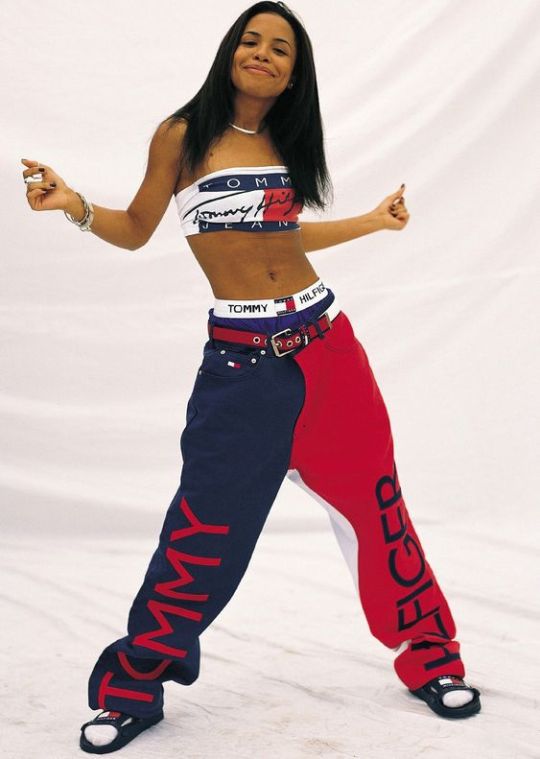
It'd be very easy and very reductive to say that the changing ideology of the 2010s was the downfall of preppy mall brands, but really, the thing that truly killed them was the downfall of the mall itself. Shopping habits changed, and logos and brand names no longer held the power they once had.
The moral of the story is that being a teenager is fucking hell, and these popular brands both offered the safety of conformity and a status symbol to hold over the heads of the poor and uncool. The irony is that everyone who hated them as teenagers (read: ME) and the freaks who grew up to truly love the power of self-expression through personal style (read: ME) became the truly cool people. If you wore Abercrombie you grew up to vote for Donald Trump.
GO GOTH. PREPS SUCK. THE END.
930 notes
·
View notes
Text
The history of Solarpunk
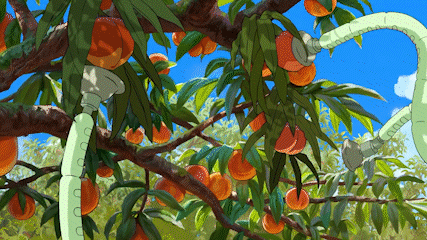
Okay, I guess this has to be said, because the people will always claim the same wrong thing: No, Solarpunk did not "start out as an aesthetic". Jesus, where the hell does this claim even come from? Like, honestly, I am asking.
Solarpunk started out as a genre, that yes, did also include design elements, but also literary elements. A vaguely defined literary genre, but a genre never the less.
And I am not even talking about those early books that we today also claim under the Solarpunk umbrella. So, no, I am not talking about Ursula K. LeGuin, even though she definitely was a big influence on the genre.
The actual history of Solarpunk goes something like that: In the late 1990s and early 2000s the term "Ecopunk" was coined, which was used to refer to books that kinda fit into the Cyberpunk genre umbrella, but were more focused on ecological themes. This was less focused on the "high tech, high life" mantra that Solarpunk ended up with, but it was SciFi stories, that were focused on people interacting with the environment. Often set to a backdrop of environmental apocalypse. Now, other than Solarpunk just a bit later, this genre never got that well defined (especially with Solarpunk kinda taking over the role). As such there is only a handful of things that ever officially called themselves Ecopunk.
At the same time, though, the same sort of thought was picked up in the Brazilian science fiction scene, where the idea was further developed. Both artistically, where it got a lot of influence from the Amazofuturism movement, but also as an ideology. In this there were the ideas from Ecopunk as the "scifi in the ecological collaps" in there, but also the idea of "scifi with technology that allows us to live within the changing world/allows us to live more in harmony with nature".
Now, we do not really know who came up with the idea of naming this "Solarpunk". From all I can find the earliest mention of the term "Solarpunk" that is still online today is in this article from the Blog Republic of Bees. But given the way the blogger talks about it, it is clear there was some vague definition of the genre before it.
These days it is kinda argued about whether that title originally arose in Brazil or in the Anglosphere. But it seems very likely that the term was coined between 2006 and 2008, coming either out of the Brazilian movement around Ecopunk or out of the English Steampunk movement (specifically the literary branch of the Steampunk genre).
In the following years it was thrown around for a bit (there is an archived Wired article from 2009, that mentions the term once, as well as one other article), but for the moment there was not a lot happening in this regard.
Until 2012, when the Brazilian Solarpunk movement really started to bloom and at the same time in Italy Commando Jugendstil made their appearance. In 2012 in Brazil the anthology "Solarpunk: Histórias ecológicas e fantásticas em um mundo sustentável" was released (that did get an English translation not too long ago) establishing some groundwork for the genre. And Commando Jugendstil, who describe themselves as both a "Communication Project" and an "Art Movement", started to work on Solarpunk in Italy. Now, Commando Jugendstil is a bit more complicated than just one or the other. As they very much were a big influence on some of the aesthetic concepts, but also were releasing short stories and did some actual punky political action within Italy.
And all of that was happening in 2012, where the term really started to take off.
And only after this, in 2014, Solarpunk became this aesthetic we know today, when a (now defuct) tumblr blog started posting photos, artworks and other aesthetical things under the caption of Solarpunk. Especially as it was the first time the term was widely used within the Anglosphere.
Undoubtedly: This was probably how most people first learned of Solarpunk... But it was not how Solarpunk started. So, please stop spreading that myth.
The reason this bothers me so much is, that it so widely ignores how this movement definitely has its roots within Latin America and specifically Brazil. Instead this myth basically tries to claim Solarpunk as a thing that fully and completely originated within the anglosphere. Which is just is not.
And yes, there was artistic aspects to that early Solarpunk movement, too. But also a literary and political aspectt. That is not something that was put onto a term that was originally an aesthetic - but rather it was something that was there from the very beginning.
Again: There has been an artistic and aesthetic aspect in Solarpunk from the very beginning, yes. But there has been a literary and political aspect in it the entire time, too. And trying to divorce Solarpunk from those things is just wrong and also... kinda misses the point.
So, please. Just stop claiming that entire "it has been an aesthetic first" thing. Solarpunk is a genre of fiction, it is a political movement, just as much as it is an artistic movement. Always has been. And there has always been punk in it. So, please, stop acting as if Solarpunk is just "pretty artistic vibes". It is not.
Thanks for coming to my TED Talk, I guess.

#solarpunk#solarpunk aesthetic#solarpunk fiction#political movement#history#history of solarpunk#amazofuturismus#put the punk back in solarpunk#scifi#science fiction#clifi#climate fiction#ecopunk
3K notes
·
View notes
Text
Today is Erev Yom Ha'Shoah (Eve of Holocaust Memorial Day) in Israel. It will be observed by Jews outside of Israel, too.

The Hebrew date was chosen to honor the outbreak of the Warsaw Ghetto Uprising. It's also a week before Erev Yom Ha'Zikaron Le'Chalalei Ma'archot Yisrael (Eve of Israel's Memorial Day for its Fallen Soldiers and Terror Victims), which is itself observed a day before Yom Ha'Atzmaut Le'Yisrael (Israel's Independence Day). A lot of people have remarked on the connection between the three dates. On Yom Ha'Atzmaut, we celebrate our independence, which allows us to determine our own fate, and defend ourselves without being dependent on anyone else, right after we remember the price in human life that we have paid and continue to pay for this independence, and a week before we mourn the price we've had to pay for not getting to have self defence during the Holocaust. NEVER FORGET that in one Nazi shooting pit alone (out of almost two thousand) during just 2 days (Erev Yom Kippur and Yom Kippur 1941), more Jewish men, women and kids were slaughtered than in the 77 years since Israel's Independence War was started by the Arabs. This unbreakable connection between the living and the dead, between our joy and our grief, is often addressed with the Hebrew phrase, במותם ציוו לנו את החיים, "With their death, they ordered us to live."

On this Erev Yom Ha'Shoah, I'd like to share with you some data, published on Thursday by Israel's Central Bureau for Statistics (source in Hebrew).
The number of Jews worldwide is 15.7 million, still lower than it was in 1939, before the Holocaust, 85 years ago (that is what a genocide looks like demographically).
7.1 million Jews live in Israel (45% of world Jewry)
6.3 million Jews live in the US (40% of world Jewry)
Here's the data for the top 9 Jewish communities in the world:
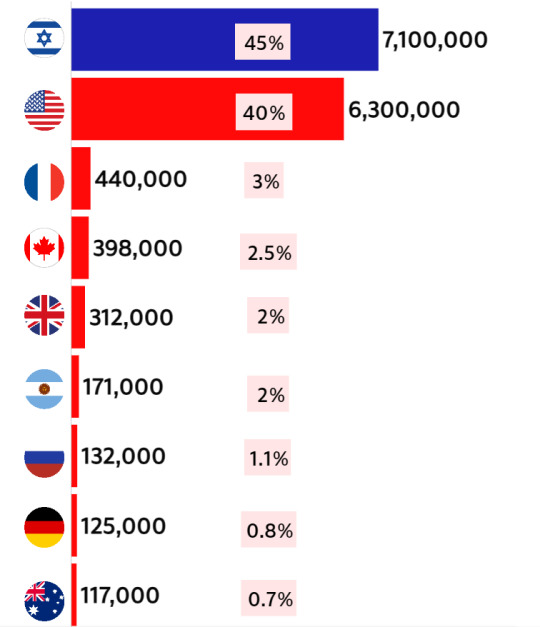
There are about 133,000 Holocaust survivors currently living in Israel. Most (80%) live in big cities in central Israel. Around 1,500 are still evacuated from their homes in northern and southern Israel due to the war (back in January, on International Holocaust Remembrance Day, there was a report about 1,894 survivors who also became internal refugees due to the war. Source in Hebrew). One Holocaust survivor, 86 years old Shlomo Mansour, is still held hostage in Gaza. He survived the Farhud in Iraq.
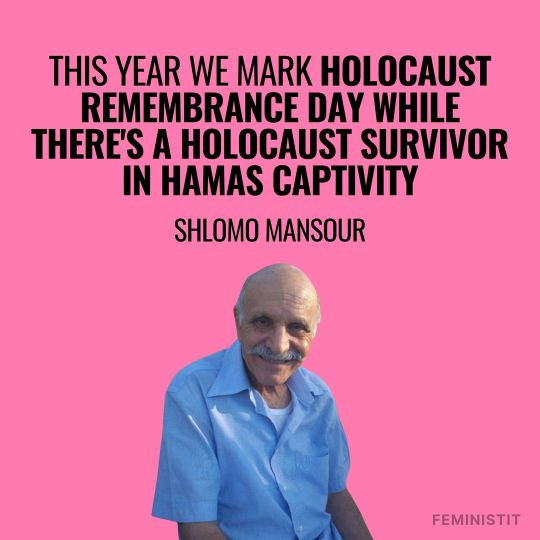
I haven't seen any official number for how many survivors had been slaughtered as a part of Hamas' massacre, despite everyone here being aware that Holocaust survivors had been murdered on Oct 7, such as 91 years old Moshe Ridler. Maybe, as we're still discovering that some people thought to have been kidnapped during the massacre, were actually killed on that day, no one wants to give a "final" number while Shlomo has not yet been returned alive.
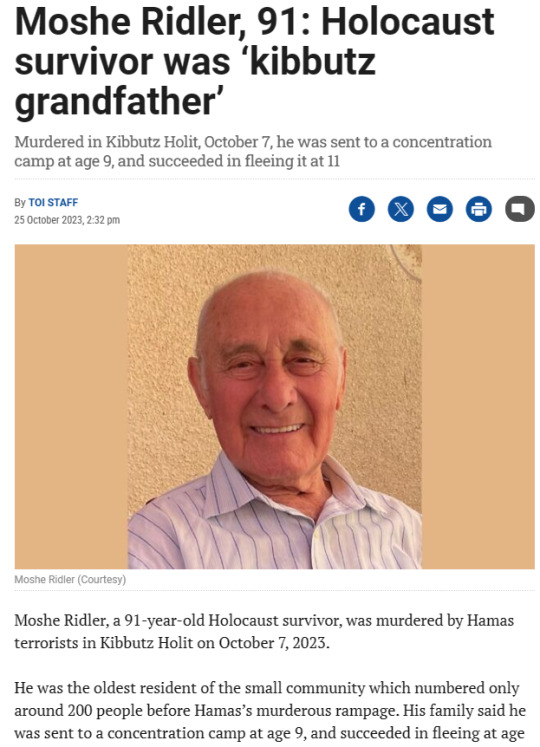
Out of all Israeli Holocaust survivors, 61.1% were born in Europe (35.8% in the countries of the former Soviet Union, 10.8% in Romania, 4.9% in Poland, 2.9% in Bulgaria, 1.5% in Germany and Austria, 1.3% in Hungary, 4.2% in the rest of Europe), 36.6% were born in Asia or Africa (16.5% in Morocco, 10.9% in Iraq, 4% in Tunisia, 2.6% in Libya, 2.1% in Algeria, 0.5% in other Asian and African countries) and 2.3% were born elsewhere.
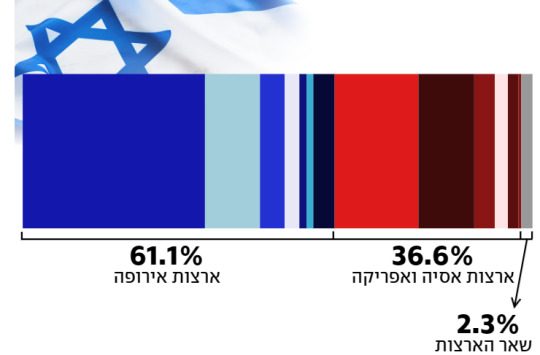
Out of all Holocaust survivors in Israel, 6.2% managed to make it here before the establishment of the state, despite the British Mandate's immigration policy against it (up until May 13, 1948). 30.5% made it to Israel during its very first years (May 14, 1948 until 1951), another 29.8% arrived in the following decades (1952-1989), and 33.5% made Aliyah once the Soviet Union collapsed, and Jewish immigration to the west (which included Israel) was no longer prohibited by the Soviet regimes (1990 on).
The second biggest community of survivors in the world is in the US, the third biggest (but second biggest relative to the size of the population) is in Australia. I heard from many Holocaust survivors who chose to immigrate there that they wanted to get "as physically far away from Europe as possible."
For a few years now, there's been this project in Israel, called Maalim Zikaron, מעלים זיכרון (uploading memory. Here's the project's site in Hebrew. In English it's called Sharing Memories, and here's the English version of the site) where Israeli celebs are asked to meet up with a Holocaust survivor (it's done in Hebrew), and share the survivor's story and the meeting on their social media on Erev Yom Ha'Shoah (which is today). Each year, there's also one non-Israeli Jewish celeb asked to participate (in English. This time around it's Michael Rapaport, he's meeting Aliza, an 81 years old survivor from the Netherlands, who was hidden along with 9 other Jewish babies for two years. He uploaded a preview of his meeting with her here, where he asked her what it means to her to be a Jew, and from what I understand, he will upload more today to the same IG account). This year, there will be an emphasis on Holocaust survivors who also survived Oct 7 (with 6 of the 20 participating survivors having survived Hamas as well). Here's a small bit from an interview with one such survivor, 90 years old Daniel Luz from kibbutz Be'eri:
(for all of my updates and ask replies regarding Israel, click here)
#israel#antisemitism#israeli#israel news#israel under attack#israel under fire#terrorism#anti terrorism#hamas#antisemitic#antisemites#jews#jew#judaism#jumblr#frumblr#jewish#israelunderattack#shoah#holocaust
467 notes
·
View notes
Text
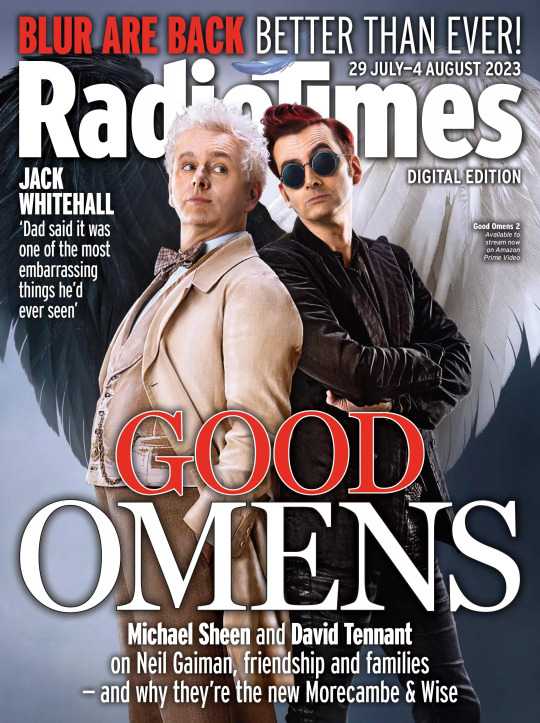
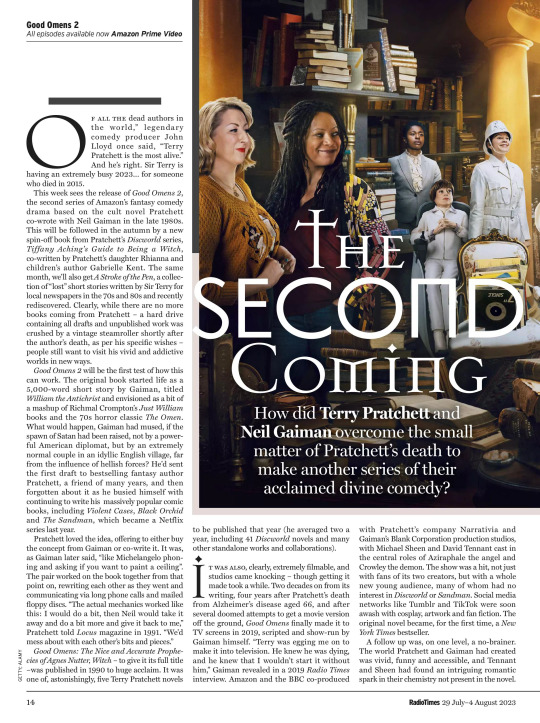
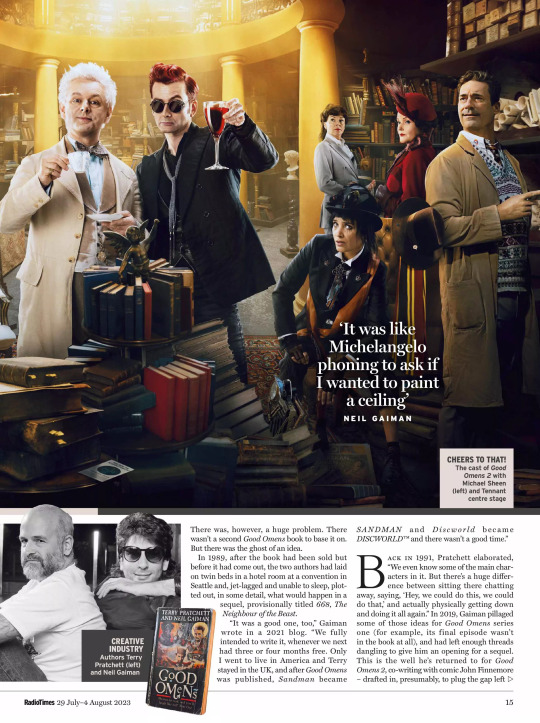
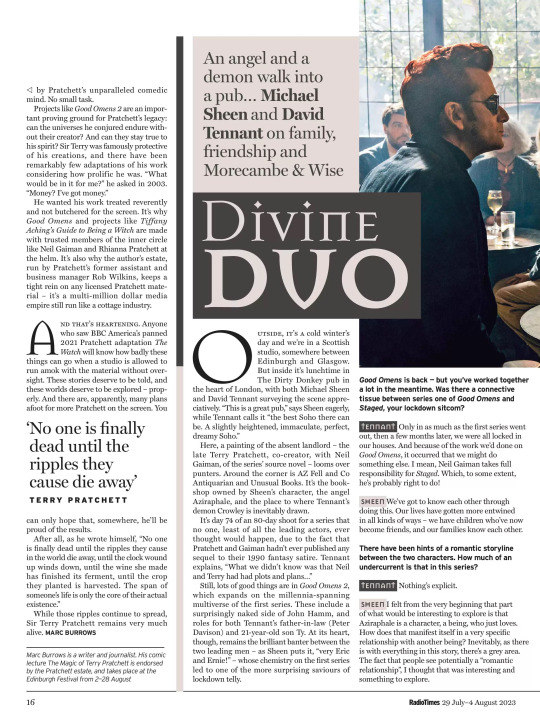
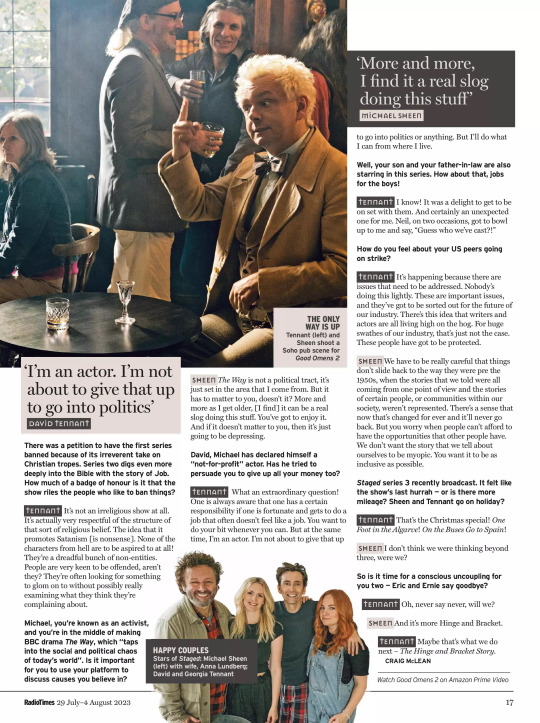
The Radio Times magazine from the 29 July-04 August 2023 :)
THE SECOND COMING
How did Terry Pratchett and Neil gaiman overcome the small matter of Pratchett's death to make another series of their acclaimed divine comedy?
For all the dead authors in the world,” legendary comedy producer John Lloyd once said, “Terry Pratchett is the most alive.” And he’s right. Sir Terry is having an extremely busy 2023… for someone who died in 2015.
This week sees the release of Good Omens 2, the second series of Amazon’s fantasy comedy drama based on the cult novel Pratchett co-wrote with Neil Gaiman in the late 1980s. This will be followed in the autumn by a new spin-off book from Pratchett’s Discworld series, Tiffany Aching’s Guide to Being a Witch, co-written by Pratchett’s daughter Rhianna and children’s author Gabrielle Kent. The same month, we’ll also get A Stroke of the Pen, a collection of “lost” short stories written by Sir Terry for local newspapers in the 70s and 80s and recently rediscovered. Clearly, while there are no more books coming from Pratchett – a hard drive containing all drafts and unpublished work was crushed by a vintage steamroller shortly after the author’s death, as per his specific wishes – people still want to visit his vivid and addictive worlds in new ways.
Good Omens 2 will be the first test of how this can work. The original book started life as a 5,000-word short story by Gaiman, titled William the Antichrist and envisioned as a bit of a mashup of Richmal Crompton’s Just William books and the 70s horror classic The Omen. What would happen, Gaiman had mused, if the spawn of Satan had been raised, not by a powerful American diplomat, but by an extremely normal couple in an idyllic English village, far from the influence of hellish forces? He’d sent the first draft to bestselling fantasy author Pratchett, a friend of many years, and then forgotten about it as he busied himself with continuing to write his massively popular comic books, including Violent Cases, Black Orchid and The Sandman, which became a Netflix series last year.
Pratchett loved the idea, offering to either buy the concept from Gaiman or co-write it. It was, as Gaiman later said, “like Michelangelo phoning and asking if you want to paint a ceiling” The pair worked on the book together from that point on, rewriting each other as they went and communicating via long phone calls and mailed floppy discs. “The actual mechanics worked like this: I would do a bit, then Neil would take it away and do a bit more and give it back to me,” Pratchett told Locus magazine in 1991. “We’d mess about with each other’s bits and pieces.”
Good Omens: The Nice and Accurate Prophecies of Agnes Nutter, Witch – to give it its full title –was published in 1990 to huge acclaim. It was one of, astonishingly, five Terry Pratchett novels to be published that year (he averaged two a year, including 41 Discworld novels and many other standalone works and collaborations).
It was also, clearly, extremely filmable, and studios came knocking — though getting it made took a while. rnvo decades on from its writing, four years after Pratchett's death from Alzheimer's disease aged 66, and after several doomed attempts to get a movie version off the ground, Good Omens finally made it to TV screens in 2019, scripted and show-run by Gaiman himself. "Terry was egging me on to make it into television. He knew he was dying, and he knew that I wouldn't start it without him," Gaiman revealed in a 2019 Radio Times interview. Amazon and the BBC co-produced with Pratchett's company Narrativia and Gaiman's Blank Corporation production studios, with Michael Sheen and David Tennant cast in the central roles of Aziraphale the angel and Crowley the demon. The show was a hit, not just with fans of its two creators, but with a whole new young audience, many of whom had no interest in Discworld or Sandman. Social media networks like Tumblr and TikTok were soon awash with cosplay, artwork and fan fiction. The original novel became, for the first time, a New York Times bestseller.
A follow up was, on one level, a no-brainer. The world Pratchett and Gaiman had created was vivid, funny and accessible, and Tennant and Sheen had found an intriguing romantic spark in their chemistry not present in the novel.
There was, however, a huge problem. There wasn't a second Good Omens book to base it on. But there was the ghost of an idea.
In 1989, after the book had been sold but before it had come out, the two authors had laid on fivin beds in a hotel room at a convention in Seattle and, jet-lagged and unable to sleep, plotted out, in some detail, what would happen in a sequel, provisionally titled 668, The II Neighbour of the Beast.
"It was a good one, too" Gaiman wrote in a 2021 blog. "We fully intended to write it, whenever we next had three or four months free. Only I went to live in America and Terry stayed in the UK, and after Good Omens was published, Sandman became SANDMAN and Discworld became DISCWORLD(TM) and there wasn't a good time."
Back in 1991, Pratchett elaborated, "We even know some of the main characters in it. But there's a huge difference between sitting there chatting away, saying, 'Hey, we could do this, we could do that,' and actually physically getting down and doing it all again." In 2019, Gaiman pillaged some of those ideas for Good Omens series one (for example, its final episode wasn't in the book at all), and had left enough threads dangling to give him an opening for a sequel. This is the well he's returned to for Good Omens 2, co-writing with comic John Finnemore - drafted in, presumably, to plug the gap left Pratchett's unparalleled comedic mind. No small task.
Projects like Good Omens 2 are an important proving ground for Pratchett's legacy: can the universes he conjured endure without their creator? And can they stay true to his spirit? Sir Terry was famously protective of his creations, and there have been remarkably few adaptations of his work considering how prolific he was. "What would be in it for me?" he asked in 2003. "Money? I've got money."
He wanted his work treated reverently and not butchered for the screen. It's why Good Omens and projects like Tiffany Aching's Guide to Being a Witch are made with trusted members of the inner circle like Neil Gaiman and Rhianna Pratchett at the helm. It's also why the author's estate, run by Pratchett's former assistant and business manager Rob Wilkins, keeps a tight rein on any licensed Pratchett material — it's a multi-million dollar media empire still run like a cottage industry.
And that's heartening. Anyone who saw BBC America's panned 2021 Pratchett adaptation The Watch will know how badly these things can go when a studio is allowed to run amok with the material without oversight. These stories deserve to be told, and these worlds deserve to be explored — properly. And there are, apparently, many plans afoot for more Pratchett on the screen. You can only hope that, somewhere, he'll be proud of the results.
After all, as he wrote himself, "No one is finally dead until the ripples they cause in the world die away, until the clock wound up winds down, until the wine she made has finished its ferment, until the crop they planted is harvested. The span of someone's life is only the core of their actual existence."
While those ripples continue to spread, Sir Terry Pratchett remains very much alive. MARC BURROWS
DIVINE DUO
An angel and a demon walk into a pub... Michael Sheen and David Tennant on family, friendship and Morecambe & Wise
Outside it's cold winter's day and we're in a Scottish studio, somewhere between Edinburgh and Glasgow. But inside it's lunchtime in The Dirty Donkey pub in the heart of London, with both Michael Sheen and David Tennant surveying the scene appreciatively. "This is a great pub," says Sheen eagerly, while Tennant calls it "the best Soho there can be. A slightly heightened, immaculate, perfect, dreamy Soho."
Here, a painting of the absent landlord — the late Terry Pratchett, co-creator, with Neil Gaiman, of the series' source novel — looms over punters. Around the corner is AZ Fell and Co Antiquarian and Unusual Books. It's the bookshop owned by Sheen's character, the angel Aziraphale, and the place to where Tennant's demon Crowley is inevitably drawn.
It's day 74 of an 80-day shoot for a series that no one, least of all the leading actors, ever thought would happen, due to the fact that Pratchett and Gaiman hadn't ever published any sequel to their 1990 fantasy satire. Tennant explains, "What we didn't know was that Neil and Terry had had plots and plans..."
Still, lots of good things are in Good Omens 2, which expands on the millennia-spanning multiverse of the first series. These include a surprisingly naked side of John Hamm, and roles for both Tennant's father-in-law (Peter Davison) and 21-year-old son Ty. At its heart, though, remains the brilliant banter between the two leading men — as Sheen puts it, "very Eric and Ernie !" — whose chemistry on the first series led to one of the more surprising saviours of lockdown telly.
Good Omens is back — but you've worked together a lot in the meantime. Was there a connective tissue between series one of Good Omens and Staged, your lockdown sitcom?
David: Only in as much as the first series went out, then a few months later, we were all locked in our houses. And because of the work we'd done on Good Omens, it occurred that we might do something else. I mean, Neil Gaiman takes full responsibility for Staged. Which, to some extent, he's probably right to do!
Michael: We've got to know each other through doing this. Our lives have gotten more entwined in all kinds of ways — we have children who've now become friends, and our families know each other.
There have been hints of a romantic storyline between the two characters. How much of an undercurrent is that in this series.
David: Nothing's explicit.
Michael: I felt from the very beginning that part of what would be interesting to explore is that Aziraphale is a character, a being, who just loves. How does that manifest itself in a very specific relationship with another being? Inevitably, as there is with everything in this story, there's a grey area. The fact that people see potentially a "romantic relationship", I thought that was interesting and something to explore.
There was a petition to have the first series banned because of its irreverent take on Christian tropes. Series two digs even more deeply into the Bible with the story of Job. How much of a badge of honour is it that the show riles the people who like to ban things?
David: It's not an irreligious show at all. It's actually very respectful of the structure of that sort of religious belief. The idea that it promotes Satanism [is nonsense]. None of the characters from hell are to be aspired to at all! They're a dreadful bunch of non-entities. People are very keen to be offended, aren't they? They're often looking for something to glom on to without possibly really examining what they think they're complaining about.
Michael, you're known as an activist, and you're in the middle of Making BBC drama The Way, which "taps into the social and political chaos of today's world". Is it important for you to use your plaform to discuss causes you believe in?
Michael: The Way is not a political tract, it's just set in the area that I come from. But it has to matter to you, doesn't it? More and more as I get older, [I find] it can be a real slog doing this stuff. You've got to enjoy it. And if it doesn't matter to you, then it's just going to be depressing.
David, Michael has declared himself a "not-for-profit" actor. Has he tried to persuade you to give up all your money too?
David: What an extraordinary question! One is always aware that one has a certain responsibility if one is fortunate and gets to do a job that often doesn't feel like a job. You want to do your bit whenever you can. But at the same time, I'm an actor. I'm not about to give that up to go into politics or anything. But I'll do what I can from where I live.
Well, your son and your father-in-law are also starring in this series. How about that, jobs for the boys!
David: I know! It was a delight to get to be on set with them. And certainly an unexpected one for me. Neil, on two occasions, got to bowl up to me and say, "Guess who we've cast?!"
How do you feel about your US peers going on strike?
David: It's happening because there are issues that need to be addressed. Nobody's doing this lightly. These are important issues, and they've got to be sorted out for the future of our industry. There's this idea that writers and actors are all living high on the hog. For huge swathes of our industry, that's just not the case. These people have got to be protected.
Michael: We have to be really careful that things don't slide back to the way they were pre the 1950s, when the stories that we told were all coming from one point of view and the stories of certain people, or communities within our society, weren't represented. There's a sense that now that's changed for ever and it'll never go back. But you worry when people can't afford to have the opportunities that other people have. We don't want the story that we tell about ourselves to be myopic. You want it to be as inclusive as possible
Staged series 3 recently broadcast. It felt like the show's last hurrah — or is there more mileage? Sheen and Tennant go on holiday?
David: That's the Christmas special! One Foot in the Algarve! On the Buses Go to Spain!
Michael: I don't think we were thinking beyond three, were we?
So is it time for a conscious uncoupling for you two — Eric and Ernie say goodbye?
David: Oh, never say never, will we?
Michael: And it's more Hinge and Bracket.
David: Maybe that's what we do next — The Hinge and Bracket Story. CRAIG McLEAN
#good omens#gos2#season 2#radio times#radio times 2023#interview#magazines#neil gaiman#terry pratchett#david tennant#michael sheen#david interview#michael interview#neil interview#terry interview#bts#fun fact#staged#the way#s2 interview#transcripts
896 notes
·
View notes
Text
The Biden administration yesterday rolled out its latest tool to tackle the student debt crisis, and as we discussed earlier this year, it’s a good one. While the administration is still working on a broader debt forgiveness plan that it hopes will survive the Trump/McConnell Supreme Court, the new income-driven repayment program, called the “Saving on a Valuable Education” (SAVE) plan, should drastically cut the amount of student loan payments for lower-income borrowers, and for many, will actually get those payments down to zero.
[ ]

With the SAVE plan, the Education Department will no longer charge any interest that isn’t covered by the monthly loan payment, putting an end to the interest-accumulating hamster wheel that so many of us know all too well, where you make your payments on time but your goddamn loan balance keeps growing. As the fact sheet explains:
For example, if a borrower has $50 in interest that accumulates each month and their payment is $30 per month under the new SAVE plan, the remaining $20 would not be charged as long as they make their $30 monthly payment. The Department of Education estimates that 70 percent of borrowers who were on an IDR plan before the payment pause would stand to benefit from this change.
As with other income-driven plans, once a borrower has made payments for 20 years (for undergrad debt) or 25 years (for grad school debt), any remaining balance will be forgiven — yes, even if the monthly payment amount was zero for some or all of that period. Explain to your rightwing uncle that such forgiveness is not a new gimmick Joe Biden made up; it’s how IDR plans have worked since Congress authorized them in the 1990s.
#student debt relief#SAVE plan#us politics#in support of an informed and engaged electorate#recommended reading
1K notes
·
View notes
Text
Representation vs. Appropriation
When I made a tumblr blog post pointing out that the character creator in Baldur’s Gate 3 included culturally appropriative face tattoos, lot of people decided to bend over backwards to defend this. Excuses I have found while giving my blocking finger a routine work-out thus far have ranged from “Larian Studios is European so they don’t know any better”, to a classic “it’s just a fantasy game, stop being so oversensitive”. But by far the most common poor reaction was, “what if it’s representation?”
Now, two Māori people were quick to jump into this post and say themselves, clear as day, that this is not representation, it is appropriation. That should be enough right there—settlers do not get to decide what is and isn’t representation for us Indigenous folks. But white people not listening to Indigenous voices is nothing new. I’ve been forced to learn that if you want to be taken seriously by settlers, your best chance is to coddle and appease their poor little delicate feelings. So, let’s pretend for a second that these “what if it’s representation?” questions are actually asked in good, albeit ignorant faith, and not just a pathetic gut-reaction to avoid having to critically think about a beloved game. (Which, by the way, I still overall adore myself, mind you.) Let’s pretend they actually want an answer, and give it to them.
It’s very easy to list the examples of positive Indigenous representation I’ve personally experienced in video games, not made by Indigenous folks ourselves, because there’s only one game that comes to mind: Assassin’s Creed 3. The protagonist of AC3 is Ratonhnhaké:ton of the Kanienʼkehá꞉ka people. Ubisoft is a terrible company for other reasons, but they did one thing right in the development of this game: They hired a cultural consultant, Thomas Deer. Deer was able to guide them through avoiding offensiveness and stereotypes, and include proper cultural touchstones that Indigenous players, especially Mohawk players, would want to see. For example, Ubisoft originally wanted to include sacred ceremonial masks in the game, but Deer told them that depictions of these masks would be taboo. He also helped them choose what clothing and jewellery was authentic to the Nation. This, among much more, helped create a truly representative experience. What makes it representation is that it features an Indigenous character in a positive way, without crossing lines into what should not be touched by outsiders. But had Ubisoft decided to ignore Deer’s consultation and go ahead with using those sacred masks… that would have been cultural appropriation.
Cultural appropriation is taking a closed cultural practice and using it yourself, despite not belonging to the culture it comes from. The key word there is closed, as in, something not for outsiders to touch. Eating frybread is not cultural appropriation, because it’s something freely shared by Natives to others. But wearing a fake headdress to your local musical festival is cultural appropriation, because headdresses are sacred regalia not freely shared by Natives to others. It really is that simple: just listen to boundaries set by the People.
“But my fake headdress is just clothing.” “But a fake kakiniit is just ink.” “But my fake totem pole is just decoration.” Except not, and the very fact that you have no respect for the history and meaning behind these things is the perfect example as to why they are not for you. But being told something isn’t for them has always been a hard a pill for settlers to swallow.
The phrase “nothing about us without us” is often used when advocating for rights and respect of minorities. It was first brought into English vocabulary by South Africa’s disability activism in the 1990’s, and has since been adapted across the world as a slogan to mean uplifting voices of the people you claim to want to help, instead of speaking over them. I personally first heard it through EDIRA work (Equity, Diversity, Inclusion, Reconciliation and Accessibility) at my job, and I feel like it can be applied in many different ways, this being one of them. The best representation comes from listening to the people you want to represent. Had Larian done that, they would have known that imitating those tattoos was off limits. But since they didn’t, they took what wasn’t theirs to take. And that’s appropriation.
718 notes
·
View notes
Text
So @hejeksbs saw that post about fandom olds freaking out about IWTV stuff being posted on the AO3, and said they’re new to fandom and fandom culture and don’t understand. So congrats, Hejek, you’re one of today’s lucky 10,000. This is going to be a basic primer, but I encourage others to chime in with details. (Also, thanks for reminding me I need an Interview exhibit in the museum. I had that written down somewhere.)
So if you go back to the 1990s and early 2000s—the pre-AO3 digital years—you’re going to see an official disclaimer on just about every fic. These basically said “I don’t own anything here, please don’t sue me.” Some were quoted elaborate.
These started because of Anne Rice.
See, Anne Rice was, how can I say this nicely…an asshole? The day she died there were literally people posting crab rave and “Ding Dong, The Witch Is Dead” from The Wizard of Oz on Tumblr. Because before Harry Potter fanfiction was pretty frowned upon and you might get a C&D if you didn’t keep your head down properly, but Anne Rice.
ANNE RICE.
Anne Rice literally recruited her “loyal fans” to harass people who made fanworks. At least one person was doxxed to her workplace by rabid Ricers, and at the time fanfiction was taboo enough you could absolutely get fired for that. I was eleven and friends with someone who was 13 who’d just read Interview and drew this wonky I-am-a-kid-who-can’t-really-draw-yet-but-I-loved-this-SO-MUCH piece of fanart of Louis and Lestat, and she literally dipped off the internet because she got an extremely nasty “I’m suing you” threat from Rice. (Are you out there, Mercury000? It’s me, sailorsharon0722.)
Anne Rice did everything in her power to ensure there was no IWTV fandom at all. I’ve heard from people older than me that she used to host a “vampire’s ball” every year in New Orleans for her “loyal fans” but if you showed up and she felt your costume outshone her own, she’d make you leave. People didn’t dare so much as put “Lestat” and “fanfiction” in the same sentence.
And then, irony of ironies, when her reputation got so bad she was struggling to sell books, she…became a Christian and started writing Bible fanfiction to sell.
Yeah.
Over the years there were claims she’d changed her mind about fanfiction, but nobody ever had evidence to back this up. I even saw a dude on Quora claiming to be a close friend of hers saying we were all lying, and he got absolutely ratioed by fans going “I still have my C&D letter, you wanna fucking try again?”
Incidentally, I would like to point out that her attitude wasn’t uniform. It’s easy to say “that’s just how it was,” but Neil Gaiman has been around since the 1980s and has always appreciated fanfiction. Stephen King’s approach is “please tell me, to my face, that me explicitly writing about Cthulhu isn’t fanfiction” and otherwise pretty lassez-faire (he has no interest in knowing you’re writing fanfiction of his stuff, he just genuinely doesn’t care), and his first book was published in the early 1970s. Gene Roddenberry, creator of Star Trek, actually accepted submissions of fanfiction scripts DURING THE SHOW’S ORIGINAL RUN, at least according to popular lore. (@dduane, can you check me on this?) Mercedes Lackey—who’s 1980s-and-1990s fantasy royalty—has been asked on Quora about why she “changed her mind about fanfiction” and her response was “I never changed my mind, I just had to talk my publisher into accepting it. I’ve always been okay with it but I had to say no because of my contract.” Sure, Diana Galbaldon was out there comparing fanfiction to rape(????), but even among those who disapproved of fanfiction, Rice’s attitude and actions were extreme. And they persisted into the 2000s, too, with her egging on fans who harassed and sent death threats to a YouTube reviewer who didn’t like one of her books.
AO3 changed ALL of that.
AO3 said “here is our well-researched legal claim that fanfiction is legal, and if someone gives you shit about works you have posted on our website, our lawyers will represent you. You can post safely here. It’s okay. We got your back.”
Even so, the fear about Anne Rice continued. And can you blame people? This woman’s name held the same power in fannish conversations as “Voldemort.” (A moniker by which I’ve actually heard her called.) She all but destroyed the old guard, on purpose.
….and then a new generation of fans happened. A new generation that didn’t remember life before AO3, had never known anyone who literally had to move house to get away from Rice’s minions’ threats and harassment. I know we use “nature is healing” as a joke on this website, but really truly, that’s what happened here. She left charred tree trunks and bushes that were old-school fans and from their ashes tiny little 2010s-fans seedlings began to grow.
The thousand-odd fics you saw in those screenshots (which I feel I should clarify are from before the new show came out—a show that must have her turning in her grave, because she was absolutely adamant that all her vampires were STRAIGHT and if you thought otherwise you were DISGUSTING, and I hope she spins so hard her corpse combusts) are absolutely shocking to us older fans because it’s like staggering out of a nuclear wasteland and spotting a little garden with signs saying “free nuclear-illness medical services” and realizing it’s real. What the fuck, what the fuck, but also, holy shit y’all we’re so proud of you. YES. Keep going. Don’t let the witch get you down.
EDIT: I’ve been informed by someone in the notes that IT ACTUALLY GETS WORSE:
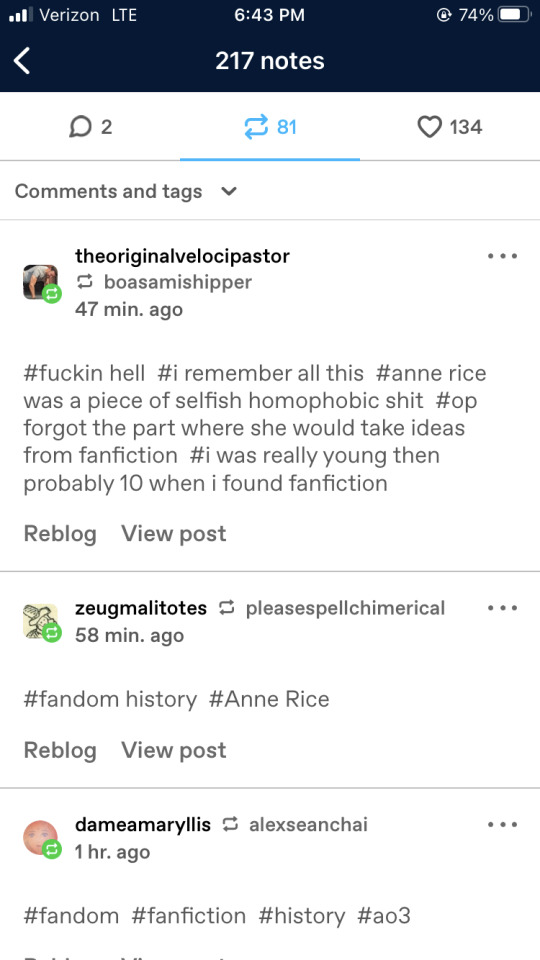
I’m not going to transcribe the whole thing because I’m on mobile and most of it is just bog-standard post notes, but what’s relevant is @theoriginalvelocipastor saying “OP forgot the part where she [Anne Rice] would take ideas from fanfiction.”
Like holy motherFUCKER this woman’s hypocrisy.
2K notes
·
View notes
Text
okay heres the fucking thing about this script controversy that some people don't seem to get.
just gonna say it blatently:
strap in babes this is gonna be a long one!
The way Miguel O'Hara is written in the leaked transcripts is blatantly racist, here's why from a Latino himself!
all wrapped up in a sweet little bow for everyone who doesn't know how to comprehend what they're reading, cheers!
er. i mean.
¡Salud!
Miguel fans are not mad that they depicted him in a bad light and that they made it clear that he is in the wrong
WE FUCKING KNOW. WE'RE NOT STUPID.
Miguel has been depicted as a morally grey asshole since the early 1990s, which is when Spider-Man 2099 was initially debuted. And while yes, the movies are.... inaccurate, to say the least, it still stands.
The issue here is how he is depicted. They directly call Miguel O'Hara, a Latino man, an ANIMAL (he is directly called an animal TWICE. FUCKING TWICE.)


[1st image id: Miguel leaps onto Vulture, Clawing his way in past the renaissance armor. he is an ANIMAL. (keep in mind ANIMAL is literally in all caps.) /end id]
[2nd image id: Miguel SLASHES at the walls of light that surround Miles. Clawing the energy field apart, an animal in the throes of bloodlust -- /end id]
I need you to really soak in the fact that he is called "AN ANIMAL" twice. I'm awful at alts and ids but I feel I must so you can read it in plain text. sorry if they suck.
Our issue is not that the writers seem to have a bias against the character. a lot of writers write characters they dont particularly like and in turn tend to write them from a foggy lense of their own perception. An example would be Kate Cary and how she didn't like Crowfeather, a character she had to write about. I'm sure some of her bias seeped through. but this is different.
writing a Latino man as a bloodthirsty animal, implied to be called a predator because they call one of the people he fights (im not sure if its miles or the vulture, im leaning towards believing the former.) his "prey", THOSE ARE ALL RACIAL STEREOTYPES. ALL OF THEM.

[3rd image id: But Miguel can only see his prey: /end id]
There is no context to be needed here, the context is that this is miguel we're talking about and that they call him an animal. it does not matter if he is a villain or not (which he isnt, factually he fucking isnt im tired of having this conversation, fuck you). it matters that he's depicted in a racially insensitive way.
and this person brought this up pretty well actually, I didn't even think of it:
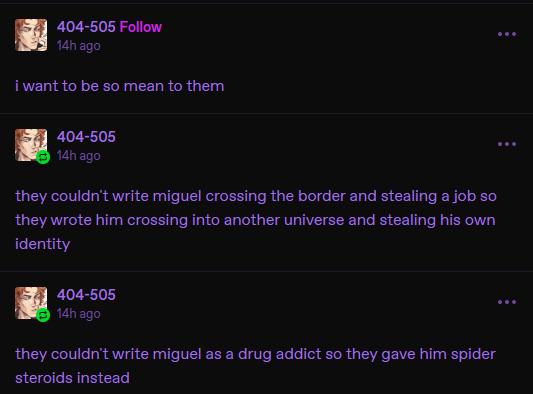
[4th image id: Tumblr user @/404-505 saying:
i want to be so mean to them
they couldn't write miguel crossing the border and stealing a job so they wrote him crossing into another universe and stealing his own identity
they couldnt write miguel as a drug addict so they gave him spider steroids instead /end id.]
They bring up a really good point about these clear stereotypes being seemingly. . . disguised behind points that are narratively relevant? This could literally just be pure coincidence, but noting how the writers wrote him before... it isn't looking too good for them. Sorry. Not sorry.
It is clear that there is some kind of bias against miguel that led to really disgusting, racist retoric. Whether or not it was intentional or if it was a first draft or whatever, the writers, which may i remind you were white, still wrote this at some point.
it makes me question whether or not they hated him because of his "bullshit utopia", their words not mine, or because of their own racial biases.
We cannot know because miguel is the only mexican character on the cast. I know Miles is Puerto Rican, but there are differences between how they were portrayed. also Puerto Ricans and Mexicans come from competely different cultural backgrounds that share simularities but are still different dont even try i will destroy you.
Using another users words again, but:

[5th image id: Tumblr user @/transmiguelohara says:
Don't talk to me about the Miguel parts in the script. I'm so disappointed in how the writers view him.
The difference between the way Miguel is written (antagonist, not the villain) vs Spot (the villain, whats to kill Miles' dad and everyone he knows) is soooo.....I don't know man it just screams racism in sorry. Describing Miguel as a bloodthirsty animal? Repeatedly? Treating him like he's mindless and has no motivation beyond having a hair trigger temper? It sucks man. /end id]
It also strikes me that now that we finally have a brown-skinned miguel, they write him like, well. this.
I don't really know if this is petty or not, but I want to wrap this back to the way the fandom also sees Movie Miguel.
Because TRUST ME it is not good either.
Miguel O'Hara Vs. FANDOM: Spoilers, it's been troubling since the beginning.
From the beginning (and by beginning in this case I mean since he was announced to be a character in this movie) Miguel has been continuously sexualized, beyond belief. He is repeatedly called "papi cholo" which NEED I REMIND YOU "Cholo" is a derogatory term used to call someone, usually a mexican person, a criminal or a delinquent.
FUCK YOU if you are not Latino OR hispanic and use this to describe people. from the bottom of my heart.
I'm pretty sure the majority of the people who called/ still currently call him "papi cholo" are mixing it up with "papi chulo" (white people moment.) which means something completely different but is still troubling as hell.
"papi chulo", which is slightly different in the way, just directly translates to "big daddy". Which again, Latino men being overly sexual "Latin Lovers" is ALSO A RACIAL STEREOTYPE. also its just blatant fetishization. Point blank fucking period.
Not only that but I notice a lot of art and fanfiction depicts him doing a lot of violence, or being very overbearing and demeaning, or in short terms.
a lot of people write him as physically and sexually aggressive.
fuck do you mean he growls during sex i can and will send you to space with no return.
which
for the millionth time
racial stereotype
halleluiah or however you spell it.
Having him say random spanish phrases you don't know the meaning or connotations of in your fanfiction is icing on the cake at this point.
fucking end me.
it isn't even only sexual depictions, since he's been shown in the movie, a lot of people seem to just see him as this guy who goes off and tries to kill children at a hairs trigger. which uh. fun fact no he fucking doesnt.
you clearly didn't watch the movie as well as you thought you did. hes just sarcastic and generally pretty level headed through the majority of his runtime, whether its implied by how characters around him act, or its just what we see on screen.
He doesn't necessarily have anger issues, the moment we see at the climax of the film is quite literally a mental break. he is not acting in a way that he usually would because he was cracking under the stress of holding the multiverse together with some scotch tape and orange glitter glue.
Also side tangent but he also has a mental break in the comics that's a little more... droopy and sad as compared to the movie, but it still happens. he has shitty mental health is what im saying. he only really lashes out angrily when hes at his wits end because that's how he grew up. he was taught to suppress his feelings and seem smaller when he was upset.
he is the result of abuse and neglect. of course he wouldn't be amazing at emotional regulation.
Which before anyone says it no, this is not an excuse for his actions. just an explaination that isn't "hes an angry animal that has it out for miles UwU" that everyone seems to have in their brain. I'm tired of you all. truly.
the sentiment that hes agressive and angry and his only emotion is anger and upsetness unless he's horny which is when he experiences all these emotions tenfold is. racist. idk how clear i have to be for people to get it through their damn skulls that the way the fandom depicts him is harmful. do i need to slap you in the face with a fish until you understand. do i need to burn your fanfiction. will you get it now that a 15 year old latino boy has to scream it in your face.
and dont even get me STARED on how inaccurately he is written
this is a more light hearted section because idk. feels like i should have it because this part is just comical, pun intended. How can you fuck up this hard guys.
I was gonna give them the benefit of the doubt because "Miguel has fresh trauma!" "He only shows up for like 10 minutes!" "insert 3rd reason!" for his drastic change in demeanor and personality, which, without context, are valid reasons for him to be a little different. trauma fucks you up man. we only see 10 minutes of him. but at this point im chalking it up to complete incompetence
it doesnt take that long to read a comic book guys. you could have done a little research, I know you can do it.
first off:

[6th image id: Miguel's SPIDER-SENSE goes off! He races to the edge if the building and peers into an empty alley -- /end id]
LMFAO WHAT THE FUCK DO YOU MEAN "SPIDER-SENSE"
Unless you didn't get the total of TWO jokes that they made in ONE scene (the vulture fight scene), Miguel doesn't have a spider sense. at all. He has elevated senses, but he doesnt have a spider sense.
guys
guys.
you made TWO jokes IN A ROW about it. YOU WHACKED HIM IN THE HEAD TWICE WITH IT. HOW DID YOU FORGET
I cant help but laugh! this is a rookie mistake! these are seasoned writers! They could have done at least a little research, or at least remembered that he doesnt have one, no? is it that hard? or does his lack of a spider sense only matter when you're making fun of your least favorite character? thats what I thought.
this one is less funny. not to sound like a stereotypical comic nerd but this infuriated me a little bit I'm not gonna lie.
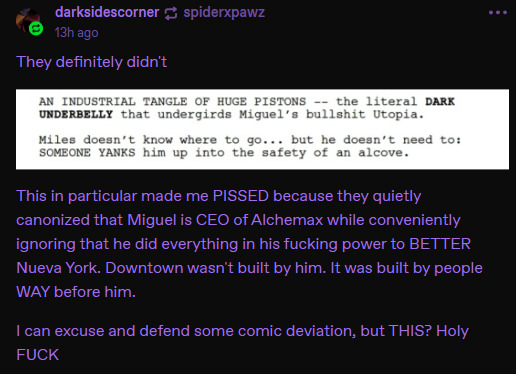
[8th image id: tumblr user @/darksidecorner reblogged tumblr user @/spiderxpawz with:
They definitely didn't
a screenshot of the script reads:
AN INDUSTRIAL TANGLE OF HUGE PISTONS -- the literal DARK UNDERBELLY that undergrids Miguel's bullshit Utopia.
Miles doesn't know where to go... but he doesn't need to: SOMEONE YANKS him up into the safety of an alcove.
the user then continues:
This in particular made me PISSED because they quietly canonized that Miguel is CEO of Alchemax while conveniently ignoring that he did everything in his fucking power to BETTER Neuva York. Downtown wasn't built by him. It was built by people WAY before him.
I can excuse and defend some comic deviation, but THIS? Holy FUCK /end id]
I honestly cant tell if I find this part funny or pathetic because seriously. he did not do this. why are you blaming him for something he had nothing to do with. i dont think he decided "hey i should build a city for rich people over poor people because reasons" when he was like... not even alive. Alchemax did this before he was even sentient. it had always been this way since he was born. he also actively hated this decision. because he actively hates alchemax.
but right MIGUELS bullshit Utopia yeah HE did this that EVIL LITTLE BABY i cant believe him
kill me.
In conclusion:
I. . . Don't really know, to be honest. I'm still processing all this. I am genuinely disappointed and upset because this isn't okay. It never will be, and if it takes yet another blunt essay with absolutely no filter for people to understand it then so be it. I don't care if this comes off as mean. This is something I feel qualified to talk about and I will express my disappointment and anger if I want to.
All of the posts I reference I have reblogged within the last 24 hours of making this post, they shouldn't be that hard to find, but if you want the links to them here they are:
https://www.tumblr.com/spiderxpawz/735344322114977792/live-mexican-reaction?source=share
https://www.tumblr.com/404-505/735289664739606528/they-couldnt-write-miguel-as-a-drug-addict-so?source=share
https://www.tumblr.com/transmiguelohara/735289238625648640/cant-believe-the-writers-have-the-same-reading?source=share
if you want your image to be removed or for your link to be removed just ask and I'll do it. but currently im kinda bummed out and tired.
goodbye.
#atsv#across the spiderverse#miguel o'hara#spiderman 2099#sm 2099#spiderman 2099 comics#miguel ohara#marvel critical#marvel criticism#atsv miguel#spiderman atsv#spiderverse#into the spider verse#spiderman into the spiderverse#marvel#racism#fandom racism#fandom criticism#idk how else to tag this other than#fuck the writers#i guess.#long post
221 notes
·
View notes
Text
Essek constantly gushing about his partner but pointedly not giving his name hits me so hard in the feels.
Two formative childhood experiences for me:
ONE
I was severely, mercilessly bullied as a child at every school I went to even if they're was no overlap of kids, and authority figures either ignored me or directly told me it was my fault. I was socially toxic. Any other kid who publicly associated with me was also targeted for harassment. I was best friends with a girl around the corner but because I was a couple years younger (in itself an invitation for bullying) and a parish, we could never let anyone know we were friends.
I've been told I should be upset at her for this, but it wasn't her fault. It was the other children who made it a fact that she would be harmed by publicly being my friend. She didn't make those rules, we were both just honest that it existed and there was nothing we could do to change that. The best we could do to survive was at least protect her. And that benefited me by actually having a friend.
So if we talked about each other it was"my friend." No names. No acknowledging we knew each other in public. No introductions to other friends. Keeping that divide up was necessary to survival. I had a couple friends on the same freak level as we and we were in fact targeted with additional harassment to get to the other person. It was a legitimate threat to live with. At some point I just stopped thinking it was ever necessary to reveal who my friends or family are unless it's both explicitly relevant and necessary.
TWO
I learned to use the internet in the late 1990s when anonymity was considered a best practice. Don't give out your age, sex, location, or other identifying information. You don't know who is on the other side of that screen or what they will do to you if they know. Sperate your online and offline worlds to protect yourself.
This helped reinforce experience one because clearly adults also acted like those kids and this just normal human behavior no one will ever put a stop to that you need to be on guard for at all times. Build in air gaps so if one of you is compromised it's harder for the perpetrator to get to other people you care about. Defending them through anonymity is a way of showing you love them.
Also since some family are searchable through have state government jobs that right-wing nut jobs chips target them for, I wanted to make sure they couldn't be connected to me as a queer trans disabled person active online. In case something I said led to them being targeted.
(This is correct advice, even though it flies in the face of modern online conventions. There are tons of malicious people on three internet who will target you and anyone you love if they decide to hurt you.)
RESULT
By default, I refer to people by their relationship to me, not their name. My friend, my partner, my parent, my family, someone I know, etc. Often I avoid gendering them to make it even harder to identify them. I have to consciously consider if the person I'm talking to has any reason to know my associate's name. Blacklist everyone, then whitelist exceptions.
I do this even if both people know each other because the specific association feels dangerous. Better to be viewed as acquaintances than a meaningful relationship that changes how either of us could be viewed. It's not even really a judgement on thinking the person is untrustworthy, I just don't want to spend any extra energy thinking about it. It doesn't even feel relevant because my relationship to this person fellas like it conveys more information that actually matters.
ESSEK
Essek knows both he and Caleb are being targeted by powerful people who have shown they will target loved ones to get to them. Additionally, tensions between the Empire and Dynasty are still high and it could very easily compromise how their own sides view them if it's known that they're romantically entangled with someone from the other side. It could also blow each other's cover and make their meeting places more vulnerable to attack. Especially if their enemies know they could hit both of them at once.
It's genuinely dangerous for their connection to be known, so they don't name names. It's not even a matter of whether Bell's Hells would intentionally misuse that information, but what they also could just let slip to the wrong person. It's not really worth the risk when "my partner" is all the information they actually need to understand him.
My guess is that Essek said "Bren" is hiss partner because they already know a Bren sent them to Astrid. And since Caleb no longer uses the name Bren it would be much harder to connect them. It would have caused more questions, more prying, and more risk to give no name for his partner when directly pressed. So he gives a truthful but less dangerous answer. The anonymity is an act of love.
#critical role#critical role meta#critical role campaign 3#Mighty Nein#Bell's Hells#Shadowgast#Essek Thelyss#Caleb Widogast#Bullying#Childhood Trauma
72 notes
·
View notes
Text
Alright, so, black holes right?
Most people have probably seen this astOUNDING image of the black hole at the center of the M87 galaxy - the first real picture of a black hole.

It may look like a blurry orange donut, but you gotta understand, this was and still is a hugely impressive achievement. At a black hole's event horizon, the escape velocity (or the speed at which something has to travel to escape the body's gravitational pull) is faster than the speed of light. By definition a black hole cannot be directly observed. Imaging the shadow of M87* required using eight ground-based radio telescopes all over the world, working together as an interferometer - or as though they were one single telescope the size of the entire planet.
So that's fucking cool in its own right, but how did we know that black holes existed before 2019 when we could actually "see" one? How do we detect something that reflects no light when we DON'T have a simulated telescope the size of Earth? The answer is gravity.
We think that most large galaxies have supermassive black holes at their centers, left over from their chaotic infancies when hundreds of thousands of early stars collided and then collapsed, and then kept colliding. To give you an idea of what we mean by "supermassive", the black hole at the center of the Milky Way, Sagittarius A* (pronounced "A-star"), is about 4 million times the mass of our sun. And that's SMALL.
So while black holes aren't the horrible all-consuming reality-guzzling unmakers of creation that science fiction likes to paint them as - we aren't in any danger whatsoever from Sagittarius A*, now or ever - they CAN get big enough to really throw things around. So we looked for objects moving under the influence of . . . nothing.
This gif is a years-long timelapse of stars orbiting something in a seemingly-empty region of space the center of the Milky Way, the approximate location marked with a red plus sign.
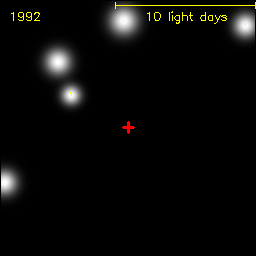
That something is Sag A*. It's an invisible behemoth, made of the extraordinarily dense remains of the birth of our galaxy, juggling entire solar systems the way Jupiter flings asteroids. And for so long, we couldn't even see it.
This shit makes me go fucking crazy. Imagine what else is out there that we don't understand just because we don't have the tools to even know it exists! Not just in space, in any field of scientific study!
It wasn't until the 1990s that we started realizing trees talk to each other, and now we know there's fungal mycelium networks that connect trees across entire continents. Just THIS YEAR we discovered an entirely new ecosystem underneath the hydrothermal vents in the deepest parts of the ocean floor. For most of human history, the existence of planets around other stars was highly debated, and now we've confirmed over 5 thousand of them. We even know what some of their atmospheres are made of!
There's a saying that "the more you know, the more you know you'll never know", and I feel like there's never been a time in history when that's been more true. And it's almost comforting, y'know? The universe is so vast, it feels correct that we shouldn't be able to understand all of its intricacies.
Reality is stranger than fiction, and the reality is there's stuff out there that we don't even have the words to begin to describe. Until we do! And our reward is even more questions!
#space#black holes#Sagittarius A*#M87#Doesn't that gif just give you chills#Whole stars!#Orbiting N O T H I N G#Any time someone mentions black holes I have to pull up this gif and make sure everyone has seen it#My friends are very patient with me#Thanks @literallymechanical for the post suggestion!#spost#space post
307 notes
·
View notes
Text
Try Again - s.h.

Chapter 1 ǁ King of Hearts
ǁ summary: Steve finally scrapes together enough funds and the courage to leave Hawkins behind so he can join Robin in Chicago. One of the first people she introduces him to is you and the aftermath includes a warning that he has heard before (and won't listen to. Again).
ǁ tags: hurt/comfort, angst (with a happy ending not in this chapter). strangers to friends to lovers. set in 1990 Chicago. hurt and slowly healing!Reader and hopeless romantic!Steve. afab!reader, she/her pronouns used, no y/n. this is the only part in the series from Steve's POV.
‖ word count: 2.5k
ǁ series masterlist ǁ next part (coming soon) ǁ

“Have I mentioned lately that you’re hopeless?”
Steve flopped back onto Robin’s couch with a groan, tossing his forearm over his eyes to hide his embarrassment. “If by lately you mean an hour ago, then yeah.”
From her arm chair beside the couch, a bag of popcorn steadily being shoved into her mouth as she watched on amused, she continued, “Then allow me to once again remind you that you are completely hopeless. And this is not the girl you wanna get your heart broken over next.”
Robin had introduced the two of you for the first time tonight – you being her classmate at community college for the last 2 years and him being the best friend who had finally saved up enough to leave Hawkins and be her roommate. She’d anticipated this happening, because you were cute and he was Steve, but she hadn’t quite expected the severity of his sudden heart eyes and awkward complimenting toward you after just a few short hours.
He lowered his arm so he could prop himself up on his elbows to look her in the eye. “She’s already in a relationship, isn’t she?”
“Nope,” she popped the ‘p’ for effect, another handful of popcorn prepared. “The exact opposite actually.”
The skin between his brows folded over itself as he tilted his head, confused. “What? What does that mean?”
She held up a finger for him to wait, finishing her absurdly large mouthful before swallowing to answer. “I mean that in the entire time I’ve known her, she has never mentioned dating or being in a relationship or talking to anyone, guy or girl. And she might just be private or something but she also fucking hates rom coms and rolls her eyes at couples on campus, so I don’t think it’s just being shy.”
Flopping back down with a groan, he threw his arms out wide and almost knocked his glass off the coffee table. “Who hates rom coms?” He asked, like the idea in and of itself was absurd.
She shrugged, reaching for her drink on the coffee table as a few kernels fell off her lap and onto the ground. “Maybe she’s a nun or something, I don’t know. Just… Don’t even think about it, okay? It’s not gonna happen.”
If only it was that easy.
Having missed his best friend and also being new to town, Steve was then involved in almost every plan Robin made, which more often than not also included you. The two of you had become easy friends – not close by any means but fully capable of joking around and talking whenever Robin was late or off somewhere else.
And while he had tried to take Robin’s advice and not let his budding crush bloom, he still found himself more attracted to you by the day. You were smart and witty with a sharp mouth that sometimes spoke before your brain caught up and left you embarrassed and scrambling to recover. Not to mention cute and kind, with a bright smile and a loud laugh that made his heart thump painfully in his chest.
Also so, so funny – he swore it was easier for you to make him laugh than anyone he had ever known (besides Robin), even when he was in the worst of moods. It was clear as day that humor was the primary aspect of your relationship with his best friend. The two of you ended up sending yourselves into hysterics on a daily basis; digging into jokes and ripping back and forth until you were both rolling around in tears.
But there were definitely things that he noticed that made Robin’s theory seem plausible. How you groaned and complained whenever anyone wanted to watch a romance movie, sometimes even got up and left the room when an action movie had a big couple kissing moment. You never talked about anything related to dating or sex but would listen politely and attentively when someone else brought it up. Whenever one of your mutual friends asked for dating advice from the group, yours was always thoughtful and realistic – sometimes to the point of pessimism.
He couldn’t help but be curious – not even specifically because of his own hidden feelings toward you, but just generally to learn more about you. He’d heard before about people who just had no interest at all in romance or sex, and maybe you were one of those people. Or maybe you just wanted to focus on school or something like that. He didn’t want to judge. He just wanted to know.
His first opportunity to ask came a few weeks later. You, him, and Robin were in a booth at your favored late night diner. Robin had called an Emergency French Fry meeting – so the three of you ordered a variety of fried foods to share across the table and some milkshakes as you both listened to Robin recounting her date.
She was still quite new to the act – having gained enough confidence in this new place to try to ask girls out when she felt safe to – but it still didn’t happen super often. And tonight’s date had gone really, really well for her. Rose was a bit more brave now that she knew Robin also liked girls and had pulled out all the stops; holding her hand as they walked down the boardwalk and putting an arm around her on the Ferris Wheel. Stuff Robin still struggled with the confidence to do and was fucking ecstatic that it was finally happening to her.
You showed nothing but excitement for Robin, listening to her go over the evening in detail and asking thoughtful questions, offering insight when Robin asked for it. Steve mostly listened, only adding comments whenever Robin looked at him for input, spending his time watching and trying to keep up. It had become one of his favorite pastimes – especially when the two of you started to talk so fast and so animated that he could barely make heads or tails of any of it.
It was cute. How you both could talk at the speed of sound and skip over half your sentences and still completely understand what the other was saying. It made him so happy for Robin to have a friend like you, which also made you that much more endearing to him.
He only noticed a slight difference in your demeanor when Robin borderline squealed over the fact that Rose had kissed her at the end of the night with a little bit too much detail. You smiled and nodded and explained again how happy you were for her – but your eyes looked sad. Your smile didn't quite reach them.
When Robin complained about needing to go to the bathroom and departed in a whirlwind, silence fell. Your hands were clasped around the base of your milkshake glass, skin brushing the heavy condensation that had collected on the table as you stared at the melting dessert. There was still that same look in your eye as you appeared to be lost in thought. If he didn’t know any better, it almost looked like you wanted to cry but wouldn’t allow yourself to.
Clearing his throat a bit awkwardly, your eyes blinked back into focus and flicked up to meet his. Took a moment to grit his teeth as he considered if he was really about to stick his foot in his mouth and ask this. Decided to do it anyway. “Feel free to tell me to fuck off but… Do you have a crush on Robin or something?”
You sat straight up in near alarm, eyes widening at him. “No! No, I’m not–” You adjusted nervously in your seat, fingers tightening around your glass for a moment. “No, I don’t.”
Not sure how to take your vehement denial, he added on, “It’s okay if you do, I don’t judge,” you looked about ready to inject again but he kept going. “You just looked kind of sad when she was talking about the end of her date so…”
Your expression fell, eyes closing as you forced a deep breath. “It’s nothing like that, I swear. It’s just…”
And he thought you actually were about to tell him something, anything about the whole thing. Finally shed some light to (hopefully) end his weird preoccupation with the idea. But before you could open your mouth again, Robin was falling back into the booth beside him with a happy sigh and more thoughts on the date she had come up with while in the bathroom. You attempted to give her your full attention again, only every once in a while glancing back over at Steve nervously before flicking back.
You were quick to make your escape that night after Robin declared your meeting adjourned – not giving him a single second to potentially bring the topic up again, to his disappointment. Robin gave him a pointed look as you hurried off that asked ‘what did you do?’ to which he just shrugged and directed her back toward his car to go home.
There were a few other things over the next few weeks that just made him more confused. There were sometimes he could swear you were flirting with him, more than you flirted with your average friend. Ending up in his personal space in a crowd, walking beside him on the sidewalk, turning everything you possibly could into a competition between the two of you, laughing louder at his jokes than was probably warranted. But maybe that was just wishful thinking on his part.
One time he’d been invited over to your apartment (with Robin), taking in everything he could to try to learn more about you. He’d made a teasing comment of, “For someone who doesn’t like romance movies, you sure do have a lot of romance books.” You’d spent the next hour wildly alternating between annoyed, embarrassed, and something that looked like fear.
While teasing was about 75% of your interactions together, he’d learned that teasing about that specific topic wasn’t something that went well with you.
Overall, he learned a lot about you. Not just your strange behavior when it came to the topics of romance, but the little things. Like your usual order at the diner and your favorite drinks. The arcade machine you spent the most time at and your most repeated mixtape from your car, plus your favorite song on it. How your eyes lit up when you saw a dog being walked or a cat lounging in a window. That your closet was mostly monotone and heavy on black, and seeing you wearing a color was a rare day. That you went to school at the community college full time while also working full time but somehow always still had plenty of time to be with your friends or help someone out.
He was surprised to find you noticed things about him too – ordering him a drink to be ready when he showed up after you, asking how something had gone at his new job. Things that people normally wouldn’t have remembered, much less cared about. And you weren’t just asking to be nice. You actually, really wanted to know about his normal day to day.
It really didn’t make it easy for him to pretend he wasn’t in way too deep on his feelings for you.
On a cold August night, after a group of you had spent the night in a pinball competition that the two of you got absurdly competitive about (despite both being painfully average at pinball), he offered to walk you home. He’d driven to the bar-cade with Robin but she was still cheering on her now-girlfriend Rose when you explained you were planning to leave for the night, so he had time to walk you home and be back in time to drive her. Fully having expected you to say no, to brush off that it wasn’t that far and you didn’t want him to have to walk back, he was delightfully surprised when you agreed.
The two of you had started out side by side, your arms wrapped tight to keep in the warmth of your light jacket and his hands tucked into his pockets. Without warning, he said, “Hold on, switch with me,” with a light hand on your shoulder. Noticed how you instinctively stiffened at the small moment of contact, not moving as he pulled away his hand and walked around to be in between you and the street.
“Oh,” was your soft reply, realizing that was why he wanted to switch, why he had touched you. You got moving again, unconsciously inching close enough for your shoulders to brush as your walk continued. It took another minute or two to shake off the unexpected interaction, but then the two of you settled into another easy conversation that led you all the way to your apartment.
Unlocking the door and propping it open, you surprised him by turning and leaning back against the door frame. “Thank you, Steve. For walking me home.”
His smile was easy, a bit crooked as he waved off your thanks. “It’s no problem. Anytime, you know that.”
“Yeah,” you offered softly, almost in a sigh. “Yeah, I do.”
And really, he couldn’t help himself. Here you were, leaning back against your door frame right in front of him, just the two of you, after a really fun night. The warm overhead light of the hallway made it look like you were almost glowing as you smiled at him in a way that gave him butterflies. He glanced down at your lips, struck with how much he wished he could kiss you, before he even realized what he was doing.
Your expression turned pained, almost to the point of a wince as you averted eye contact. Softly, almost a whisper, you begged him, “Please don’t look at me like that.”
Caught red handed, flushing all the way up to his ears, he faked ignorance by asking, “Like what?”
“Like you want to kiss me.”
When your eyes met his, they were sad again. Like you wanted to cry but you wouldn’t allow yourself to. And maybe he was a little bit of a lovesick fool when he whispered, “Would that really be such a bad thing?”
You huffed a humorless laugh, eyes closing as you took another deep breath like you needed to center yourself. When you looked up at him again, it was with a certain self-deprecating humor that you told him, “You, Steve Harrington, are Prince Charming. And I… I would never be your fairytale ending.”
He didn’t even have time to process what you might have meant before you murmured goodnight and shut the door in his face.
-
-
-
-
thanks for reading!! please reblog and leave a reaction if you liked it, they make my day <3
#steve harrington x you#steve harrington x reader#steve harrington hurt/comfort#steve harrington angst#steve harrington series#steve harrington x female reader#steve harrington x fem!reader#steve harrington fanfic#steve harrington fanfiction#steve harrington fic#stranger things fanfic#stranger things fanfiction#stranger things fic#myos ideas#myo4harrington
288 notes
·
View notes
Text
I've been thinking a lot lately* about how artistic works are so intimately products of their moment and in conversation with it, and how easy this is to overlook both in terms of discussing a work and in terms of anticipating or considering new additions to an older work.
The first is important because so many judgements that can be made about a work are only meaningful when you know what their context was. What readers need or want to see, particularly in terms of representation, is hugely mediated by what else is available to them at the time. Yeah this is about stuff like "Rocky Horror was progressive when it was created" but also it's about stuff like "the John Carter movie bombed because it was regarded as derivative", when in fact the source material originated a bunch of the 'derivative' scenes and tropes that were then used by better-known movies before a John Carter movie ever got made.
The second is important because...even if you come back to a work, as a creator, you can only make new parts of it as the person you are now, in conversation with the world and genre as it is now, not as it was when you started. Taking a mildly-infamous-among-fantasy-fans example, Melanie Rawn's unfinished Ambrai trilogy; she's often said that she can't finish it because her life has moved on and...as sad as I am it was never finished, I think that's probably smart! She could write a third book one day, maybe, but it never could or would be the third book she would have written in the 1990s. And even if she did manage that somehow, the genre has moved on in such a way that it would feel weird and probably quite offputting to read a book doing with gender and feminism what the Ambrai books were doing in the '90s, because they are/were inherently in conversation with an era of fantasy that is now past.
All of which is to say that:
as a reader (or watcher) I think it's good to hold in mind, when engaging with a work from a time and/or place unfamiliar to you, the extent of what you don't know about the context of the work
as a creator, I think it's good to be very realistic about what you're going to actually achieve when you are making something over a long time period or coming back to something you left unfinished. You can totally do that! It can be incredibly rewarding! But the thing you make now is not the thing you would have made then, probably not even the thing you imagined you were going to make then, and that's just the nature of art.
*The reason I have been thinking about this is partly books I have been reading (Mara of the Acoma, you are my blorbo) and partly a very fun podcast I have been listening to which has re-read The Ruins of Ambrai and done a lot of discussion about its context, finishing up with a great interview with Kate Elliott about writing fantasy in the '90s (and writing it now, as she is still writing great but different books!). Anyway go listen to the Hot Nuance Book Club, it's a good time.
108 notes
·
View notes
Note
CONGRATS ON GAINING 50(Or more) FOLLOWERS!
(This is my first time so bear with me-)
relation: Platonic
Characters
1. Reader (Teen)
2. Gangle
3. Ragatha
Prompt
🍼
🤡
Bonus:
🎪
(I am sorry if I did this wrong, again first time and Sorry-)
A Teen? In the Digital Circus?
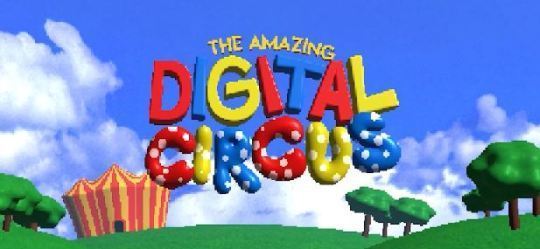
TW: Mentioned vomiting ("being sick"), crying, screaming, mentions of facing their traumas, forgetting
Type: Headcanons; platonic. Emoji details: 🍼 (Baby Bottle) Youngest member, 🤡 (Clown Face) A new face, 🎪 (Circus Tent) Circus performance activity. Game link [x].
A/N: Hi! Thank you! You're all good with the requesting, don't worry. Spoilers. Reader is one of those cymbal monkeys (like the one from Toy Story). I am making a fic for this also! It's separate as I may want to make it a series. So technically, the following will be spoilers for that, but you're free to read it anyway.
You were messing around on your computer that day. Coming from a relatively wealthy family, your mother and father owned a tech repair business. People would often sell their seemingly broken and useless old technology to them for them to repair. As such, you sometimes got things yourself as gifts.
Your most prized gift of these was an old 90's computer. It was jankier and slower than most, yes, but you cherished it. After all, where else were you going to get an authentic computer by the C&A corporation from the 1990s?
Another prized possession of yours was your newest find at a garage sale. Neighbourhood rumors had it the lady that owned the house's husband was a higher up for C&A itself, and was getting rid of all his old things so she could move on. But she never explained the origins of any of the belongings to anyone.
At that garage sale you had found a CD-ROM game titled The Amazing Digital Circus. As the lady explained, her husband had informed her it was an experimental game designed to bring back retro tech through modern add-ons. For this game, the add-on was a virtual reality headset.
You snatched the game and headset up as fast as you could. Immediately after arriving home, you went to your room to try it out. Apparently, it was only playable with the headset. So, loading the CD-ROM into the computer, you put the headset on and booted up the game.
Next thing you knew you were in the midst of Caine's activity for the day: a classic circus show of course involving the people's traumas. There was screaming and crying and all manner of horrible, confusing things. You felt sick--and were sick--when the group finally found you off to the side of the stage.
Being only a teenager, Ragatha decided to take you under her wing even more than she did with Pomni. Your new body was confusing; being a cymbal monkey, it was hard to work out how you could hold things without proper fingers or palms. And that's where Gangle came in.
Gangle, being made of ribbons and two masks, helped you out immensely when it came to adjusting to your new body. She shared her own experiences with coming to the digital world and how scary it was for her. But she also offered comfort in how she was able to get through it (or, at least keep her sanity somewhat).
Ragatha's always there for you if Jax is being a jerk. Depending on your exact age, his jerkiness will decrease to certain levels. But he's still a jerk nonetheless, no matter what stage of teenager-hood you're at. And Gangle's there for you, too, though she's often struggling with Jax herself and needs support.
I headcanon Gangle writes down everything she remembers about herself in a diary, and she's happy to get you one too. She knows how horrible it can be to forget things, and encourages you to start writing before it's too late. She's actually very interested in your life; I don't think she was dirt poor but I don't think she was super rich either, so meeting someone who comes from a wealthy family is a nice change.
When it's finally time for another circus activity, Ragatha and Gangle are there for you. They both struggle with facing their traumas themselves, so they know how hard it's going to be for a newcomer, let alone a teenager. Ragatha assures you that you'll be safe and fine afterwards, while Gangle gives you a hug and a shoulder to cry on when it's done.
Being the youngest member (AKA a literal teen), you do get babied by Ragatha a bit. She just does that to teens and kids! She's not exactly a cool person, as much as she tries to be. But she is sweet, and she'll take good care of you, even if it means you get treated like a child during it. She won't baby-talk you or anything, but she'll sometimes over-explain things or be a bit too happy-go-lucky and optimistic when it's clear you just want her to be realistic.
Gangle likes to partake in your interests if they are on the more creative side. If they're not, as long as they're not too wild she'll go along; she's just particularly fond of drawing and whatnot. She gives you a confidence boost by reminding you there are people who you can connect with who will support you.
In the end, these two just want to be there for you. Through thick and thin until the abstraction of you all, you'll be there for each other. When you're crying or upset, you'll be there for each other. And when you're laughing and enjoying yourselves, it'll be together.
Just ignore Jax for the most part.
#amy's writing#anonymous#50 follower event#the amazing digital circus#tadc#the amazing digital circus spoilers#tadc spoilers#tadc x reader#x reader#tadc headcanon#tadc ragatha#tadc ragatha x reader#tadc gangle#tadc gangle x reader#ragatha x reader#gangle x reader
156 notes
·
View notes
Text
I found this 100 year old book today, which was published by the City of Boston and contains a bunch of information and statistics about the previous year (this volume was printed in 1924 and is a review of the year 1923).

It's kind of weird that it's a 100 years old, but at the same time just feels like a regular book. When I see '1923' I get confused and makes we think that it's a book from and 1990s or something.
There are some eerie references in the introduction that it's been 5 years since 'the world war' (WW2 was still 15 years in the future), but for context in 1924 these are some things that were happening:
Hitler was sentenced to 5 years in prison for his participation in the 1923 Beer Hall Putsch (he serves less than 9 months).
Fascists win the Italian general elections with a two-thirds majority.
U.S. President Calvin Coolidge grants citizenship to all Native Americans.
The Zeppelin made its first transatlantic crossing from Germany to land in New Jersey.
United States occupation of the Dominican Republic ends.
The last known sighting of a California grizzly bear is recorded.
Astronomer Edwin Hubble announces that Andromeda, previously believed to be a nebula, is actually another galaxy, and that the Milky Way is only one of many such galaxies in the universe.
86 notes
·
View notes